About Walter 3
Cuban Chronicles, November 19, 2017
CUBAN CHRONICLES
by Walter Lippmann
Sunday, November 19, 2017, 8:00 PM
It’s been an exceptionally busy week. Having been away from Cuba for almost a year, my first interest was in seeing and checking in on various friends, and delivering the various things I brought for a range of them. One of my favorite things here is NOT having a car. My main form of transportation is what I like to call the “sistema de transporte dos pies” (the two-foot system). I use it as much as practical, but not being used to the mixture of heat (not too, too bad right now) and humidity, it’s not always practical.
For example, a couple of nice young people from Ocean Press, the Australian publishing company which specializes in Cuba-orianted books, picked me up at the airport and brought me directly to the casa particular in which I’m staying.
My first stop the morning after my arrival was with Sandra Gonzalez and her son Damian Donestevez, two Cuban friends I’ve known the longest. Damian was a translator at my very first adult trip to Cuba, the 1999 US-Cuba Yoga Encuentro in November 1999. Sandra was working when we met, and caring for her own mother at home. She worked at the petroleum planning ministry, and was the primary caretaker for her own mother. She has since retired.
Sandra, almost my age, has experienced a raft of health issues, and isn’t doing well, phyically. Sandra’s mom died years ago, and Sandra has gotten to look a lot like her mother. Damian is now Sandra’s primary caregiver. For them I brought a stethoscope, to monitor her blood pressure, and adult diapers, not yet available here.
Have also been in touch with Juan Jacomino, who heads the English department of Radio Havana Cuba. He spent five years as the media liason at the Cuban embassy in Washington. To him I brought good wishes. The station’s elevator, fixed a few years ago after being out of service for quite a few years, works well.
Back in the day, I used to tell friends that the broken elevator was “Fidel Castro’s Involuntary Exercise Program”. The English Department of RHC is up on the sixth floor, so imagine what it was like to walk up and down at least four times daily (lunch is served in a staff cafeteria across the street.)
Some over-the-counter US medicines are very popular and very hard to find locally, so friends ask friends to bring them these rare and appreciated products. Among the ones I brought this time were Ibuprofen, Advil and Tiger Balm (not made in the US, of course). Ramón Labañino, one of the Cuban Five who are now designated Heroes of the Republic, came by one evening to pick up Advil, Tiger Balm and garlic pills. Walter Tillow and his wife Kay, who’d helped Ramón’s family when they came to visit him in prison, sent these much-appreciated items.
Among the many other things I´ve brought on this trip was last Sunday´s NY TIMES, for Gerardo Hernandez. When they were in US prisons, they received the NYT every day after that full page add many of us contributed to in the campaign to secure their freedom.
He´s also going to receive a copy of the just released biography of Thomas Sankara, the leader of the revolutionary forces in Burkina Faso by Ernest Harsch. You can order it from Amazon here:
https://www.amazon.com/Burkina-Faso-History-Protest-Revolution/dp/1786991357/
It´s always good to order such items from your local independent bookstore, or places like Eso Won in Los Angeles, our last remaining Black owned and Black oriented bookstore. You´ll pay a little more at Eso Won, but you´ll also be supporting a valuable institution, and not the behemoth corporation. http://www.esowonbookstore.com/
This is an incredibly beautiful day here in Cuba´s capital city. After doing my morning exercises (about that another time), I went over to the agro market at 19th and B to get some cooked food to keep in my room (in the refrigerator). Been keeping yogurt, mango juice and bottled water until today.
Now I´ve got some delicious smoked pork (lomo ahumado in Spanish). 19th and B is considered the best local agro market, a mixture of state and private dealers. I bought it from one man, and another neatly sliced it into individual cutlets, a service for which I pay separately (2 CUC). It´s from the same butcher I always use here, a very tall black man named Kiki whose dreadlocks go all the way down to his waist, and who is always helpful.
On to the Internet place (20 machines, 18 working, no waiting line at all. So nice, peaceful and quiet it´s a joy to work here. The price of Internet service has declined FIFTY PERCENT from last year (down from $2.00 to $1.00 CUC per hour, so I can take my time and work at my leisure. Rushed work is sloppy work, often containing annoying errors (mine).
Met a couple of interesting men who were visiting with the owner of my casa particular. One directs a program for universities who are having study abroad programs here. The other is an art professor at the New School in New York City. Hope they´ll join the CubaNews list and share their impressions about Cuba during their time here.
Had lunch yesterday at a new (to me) paladar on 25th and G streets, EL PRESIDENTE. A small place with but half a dozen tables, and a large bar adjacent to the tables. Good service, good food, reasonable prices (for those who can afford them ($28 CUC for two people). Most interesting was that my friend and I were the ONLY foreigners in the place. All the rest were locals.
This is a graphic example of the process of social differentiation which has been steadily taking place over the past couple of decades. Without interviewing any of the people at the other tables, I can say with confidence that such people are successful casa particular and other small business owners, or people who receive remittances from abroad, or both.
Also this week I made a run out to my favorite CD and DVD bootlegger, Roly, whose kiosk is just north of 23rd and 12th. The laws of the market helped this customer. Last year he was charging 1.50 CUC per disc. Now the price is down to 1.00 CUC each. I´m not sure when I´ll get around to watching these, probably not while here, but for a mere 9.00 CUC I´m now the owner of these movies:
ATOMIC BLONDE with Charlese Theron
THE FOUNDER with Micheal Keaton
LOOKING FOR FIDEL by Oliver Stone
COMANDANTE by Oliver Stone
INCONCEIVABLE ith Gina Gerson, Faye Dunaway and Nicholas Cage
ROUGHT NIGHT with Scarlett Johansson
LION staring Dev Padel, Rooney Mara and Nicole Kidman
WONDER WOMAN with Gal Gadot
VESTIDO DE NOVIA by Marilyn Solaya
SOLO EN BERLIN with Emma Thompson, Brendon Gleeson and Daniel Bruhl
Who knows when, or if, I´ll ever get to see them, but at this price, they will always be available should I find the time.
Today is International Men’s Day. It’s been observed in various ways here for several years. Nothing was announced for today, but yesterday there was a premiere of a new documentary film about fatherhood. I misread the announcement in yesterday’s paper, and so missed the showing which was at one of the main theaters here in Havana, the Yara. With luck perhaps I can post a translation of some of the Cuban media reports. Here are links to the Spanish:
http://www.mujeres.co.cu/art.php?NTY0OA==
Soy papá… de cualquier manera próximamente en los cines
http://www.cubacine.cult.cu/articulo/2017/11/09/soy-papa-cualquier-manera-proximamente-cines
Some Very Preliminary First Re-Impressions
CUBAN CHRONICLES
November 15, 2017, 6:35 PM
Some Very Preliminary First Re-Impressions.
by Walter Lippmann
Though I really want to share with you some of my many first impressions on arriving back in Cuba after nearly a year away, this Internet office (Sala de Navegacion as they’re called), will close in a half hour, so a fuller report simply isn’t practical today. Hope to get something fuller out tomorrow. Still…
There were only 55 passengers on the 160 seat Alaska Airlines plan which flew direct from Los Angeles to Havana yesterday. The crew loved it. Probably the company isn’t thrilled because they must be losing money. On the other hand, they made a commitment to provide this service, and probably signed a contract, so I say, “good for them” for keeping up the service.
Today I’ve visited with several friends, begun to deliver medicines and various other things which I brought for them. There are a few more to be delivered, and that will get done.
Spent a lot of time today walking the streets, sucking up first impressions (mostly quite positive), which I’ll try to detail tomorrow.
Am working in a very nice new Internet office. TWENTY machines, flat-panel screens. Quiet place, good for work. No blackouts. Friendly staff. People coming in and out during gmy time here. I’ve been working for about 2.5 hours and will stay a bit longer.
The city is about as clean and as dirty as it always is. There are more new small restaurants. Some which were here last year have gone out of business already. Others (A wonderful restaurant called Doña Laura, on H between 23rd and 21st in Vedado) are expanding their services.
You can get a FULL MEAL at Doña Laura for 30-40 pesos (1.25-1.50 CUC!), served on porcelain plates with metal knives and forks, a wonderful bargain and good food (imagine, a glass of mango juice for 5 pesos, a glass of guava juice for 3 pesos (twelve US pennies!).
Now, if you want to feed a minimum of FIFTEEN people, they will deliver a complete meal to your home, including a pig leg, for $80.00 CUC. I’m not sure where I could host such a party, but you can see things are moving right along here. I’ll write a longer report, maybe post a picture at some point.
There’s so much to say, but rushed work is guaranteed to be sloppy, so that is all for today. Been delivering presents to friends and dealing with a few bureaucratic tasks. Hopefully, more will be possible tomorrow. There’s a LOT to report.
Stay tuned.
Take Back the Workplace 11/12/2017
#MeToo Survivors March – Take Back the Workplace
March and Rally, Hollywood, California
November 12, 2017
Text and dozens of photos by Walter Lippmann.
Hundreds of women and men came out on short notice today to protest sexual abuse and rape. Called by local organizations and a group of female farmworkers, an estimated 500 people assembled in the heart of the Hollywood tourist district. They marched to the headquarters of CNN where a militant rally was held, then marched back to the starting point.
The crowd was lively, well-organized and very spirited. Local feminist and activist groups, as well as a leadership group of female farmworkers who drove 100 miles from Ventura county, made forceful statements, including speaking from personal experience. Speakers included figures in the Hollywood entertainment industry as well as local activists. The farmworkers carried signs in Spanish, and their leader spoke, in Spanish, to the assembled protesters. The event was very diverse ethnically.
One particularly striking aspect was that most of the signs were hand-made.
Police were present and well-mannered. Lots of media people were the and reports went out in the LA TIMES, LA OPINION (Los Angeles’ main Spanish-language daily) very quickly. I’ve been going to demonstrations since 1961, and except for that first march, this was the first time I have EVER been to a protest where I did not know one single individual.
Here are a series of photos I took at the demonstration.
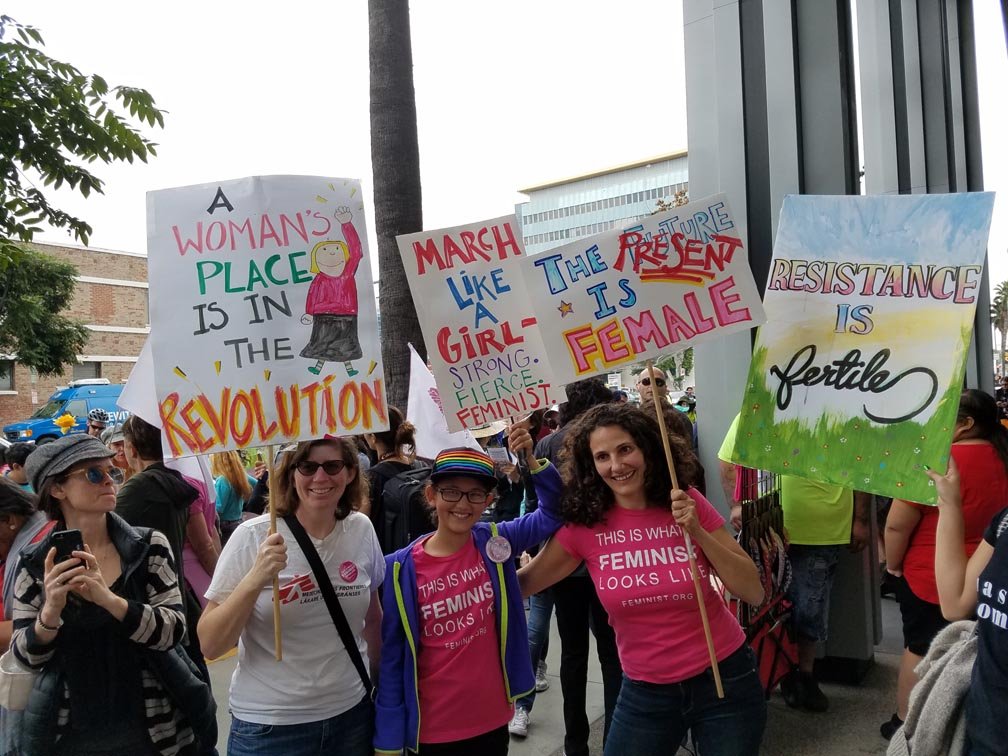
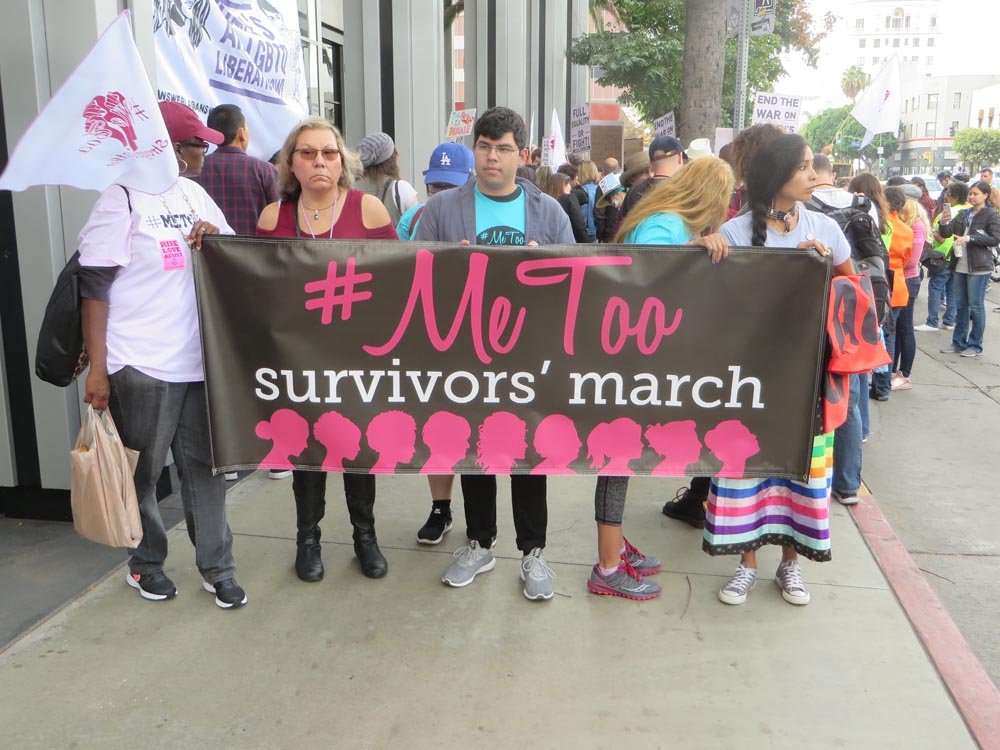
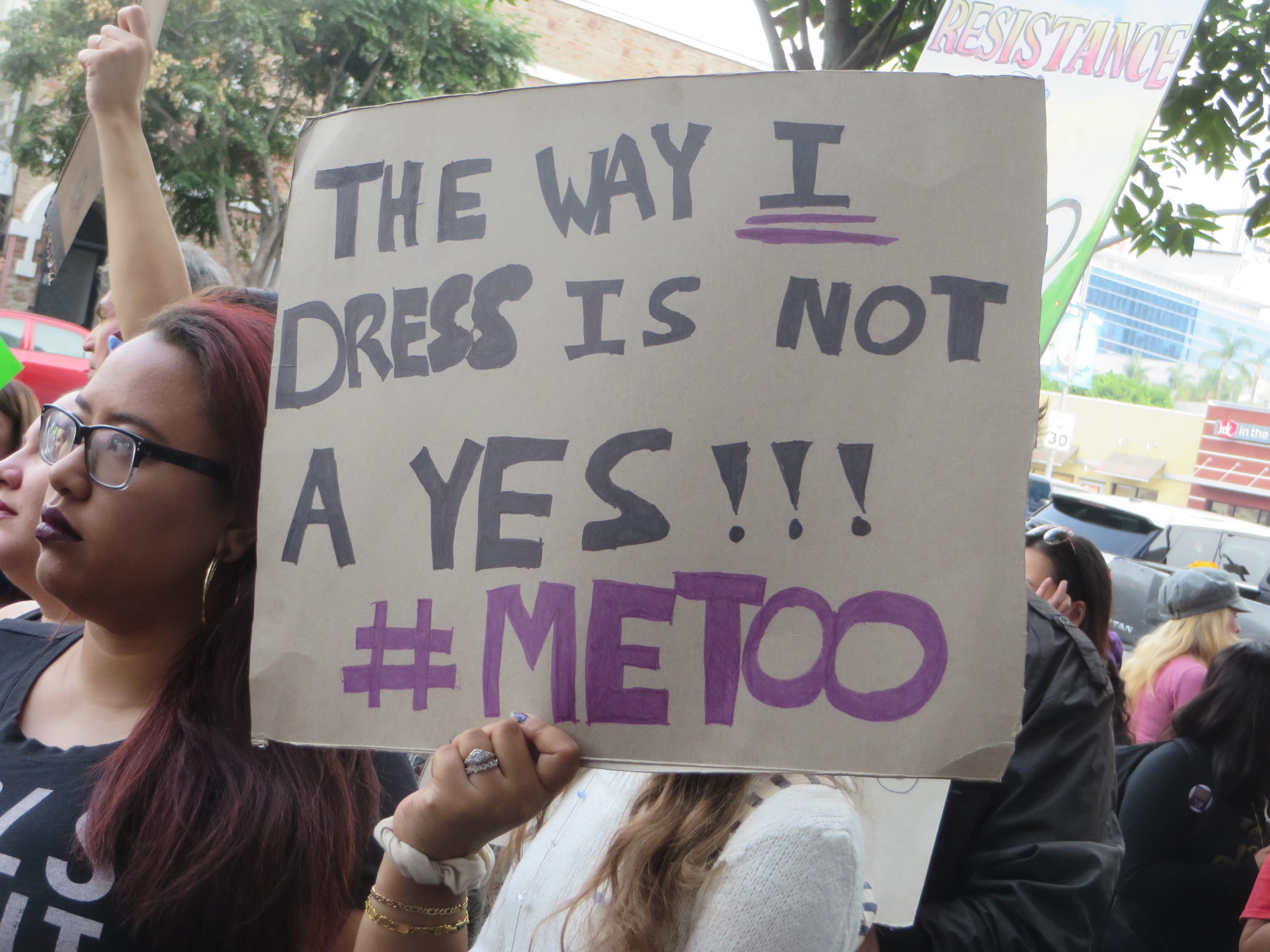
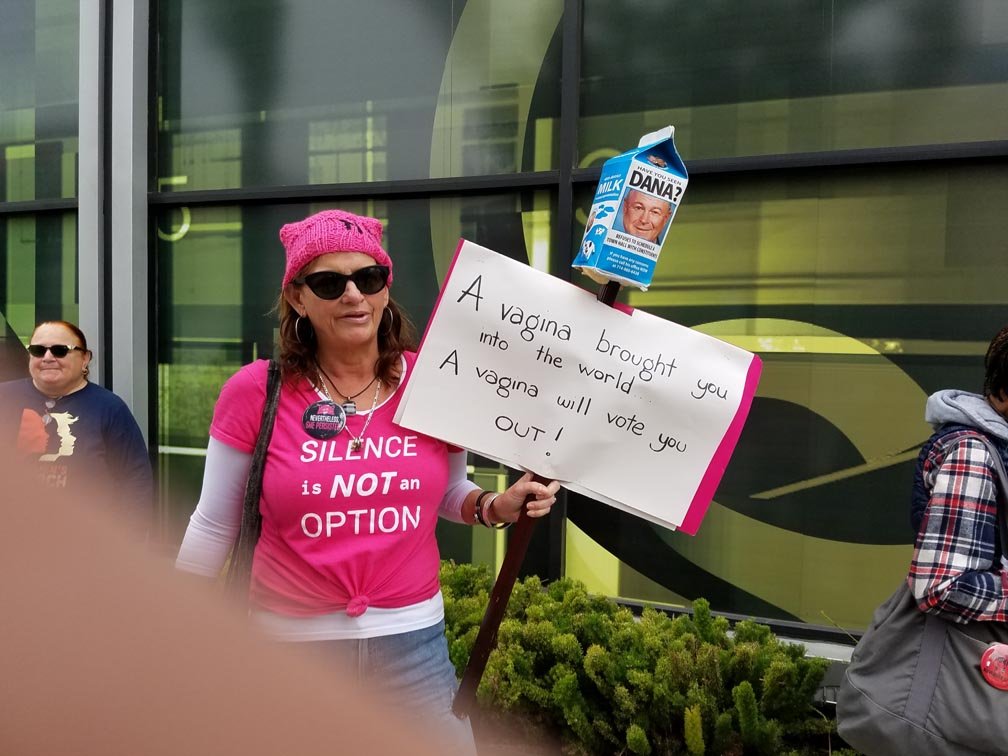
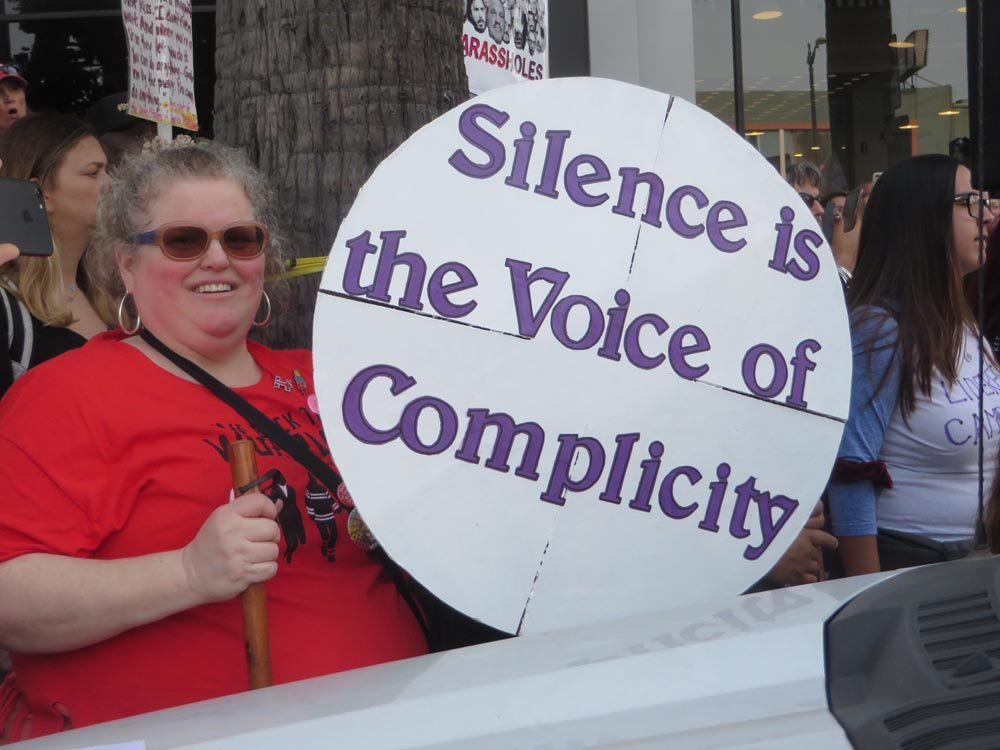
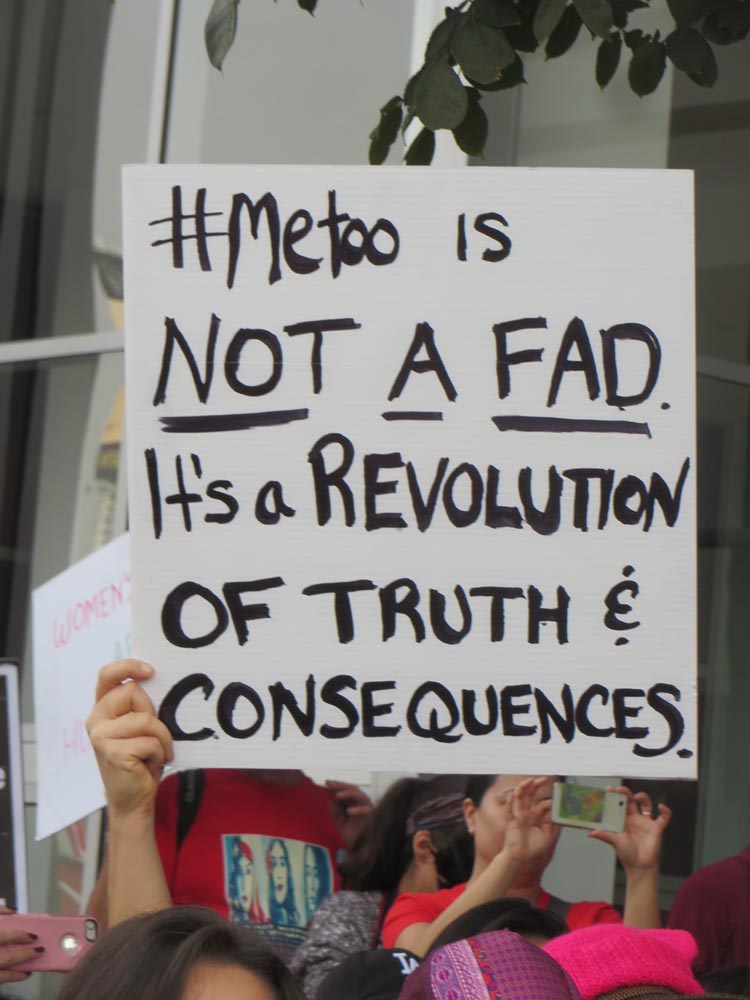
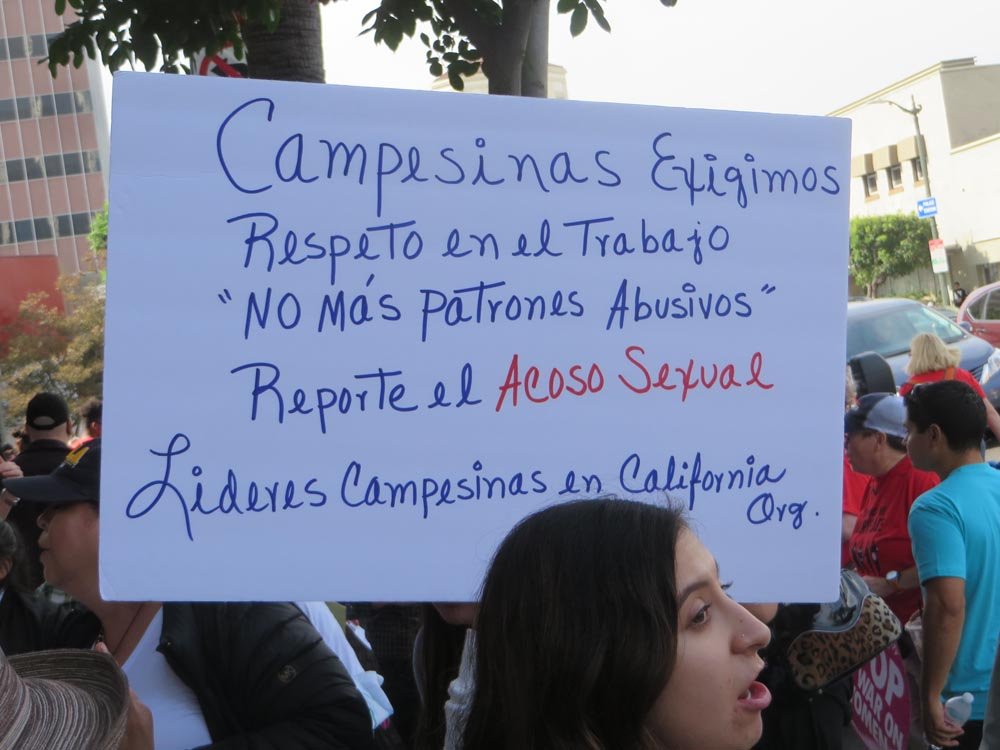
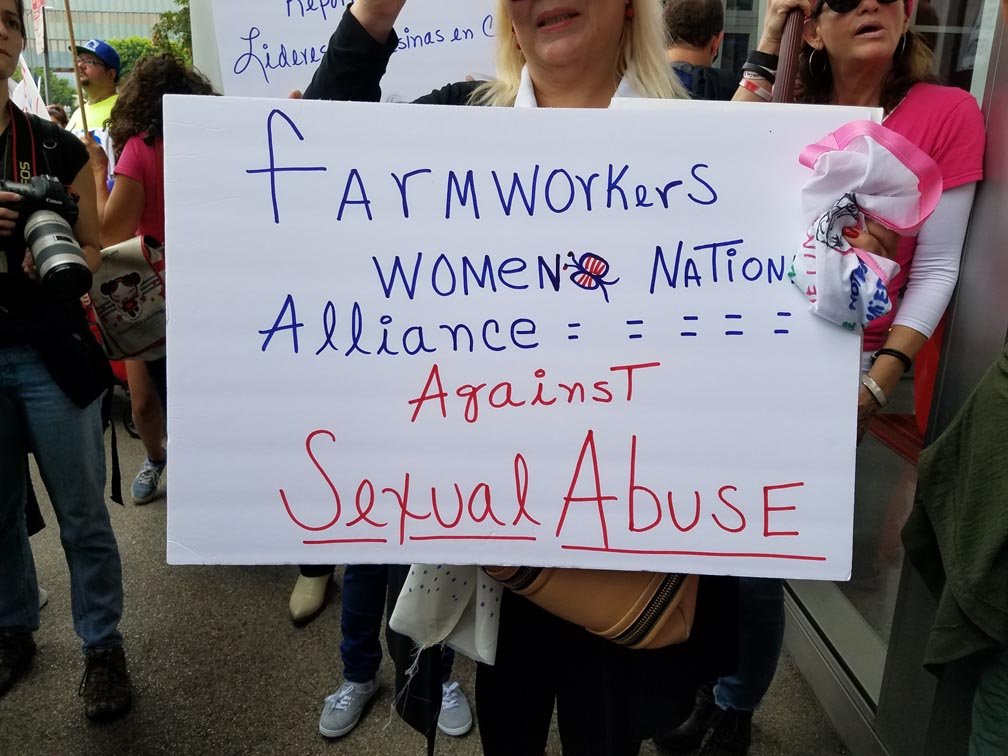
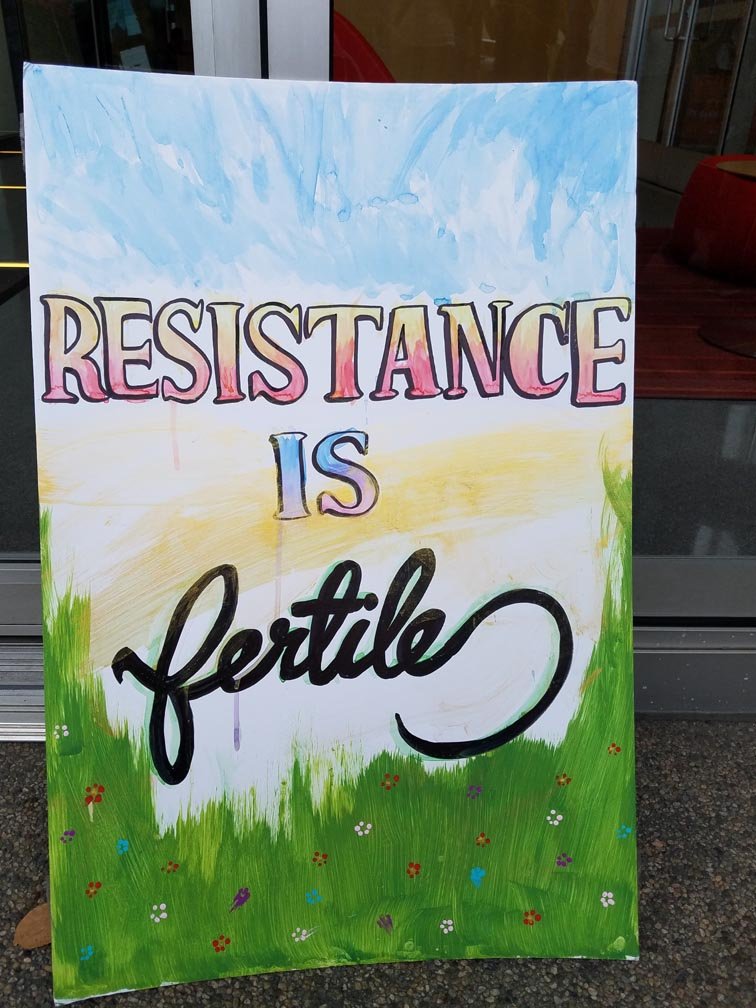
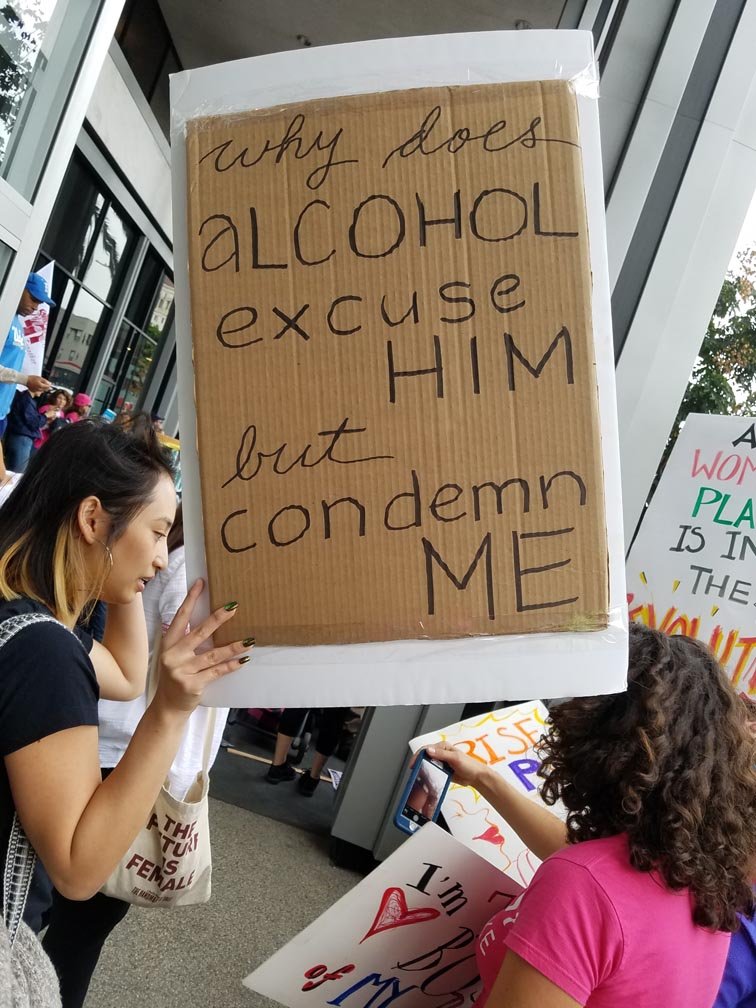
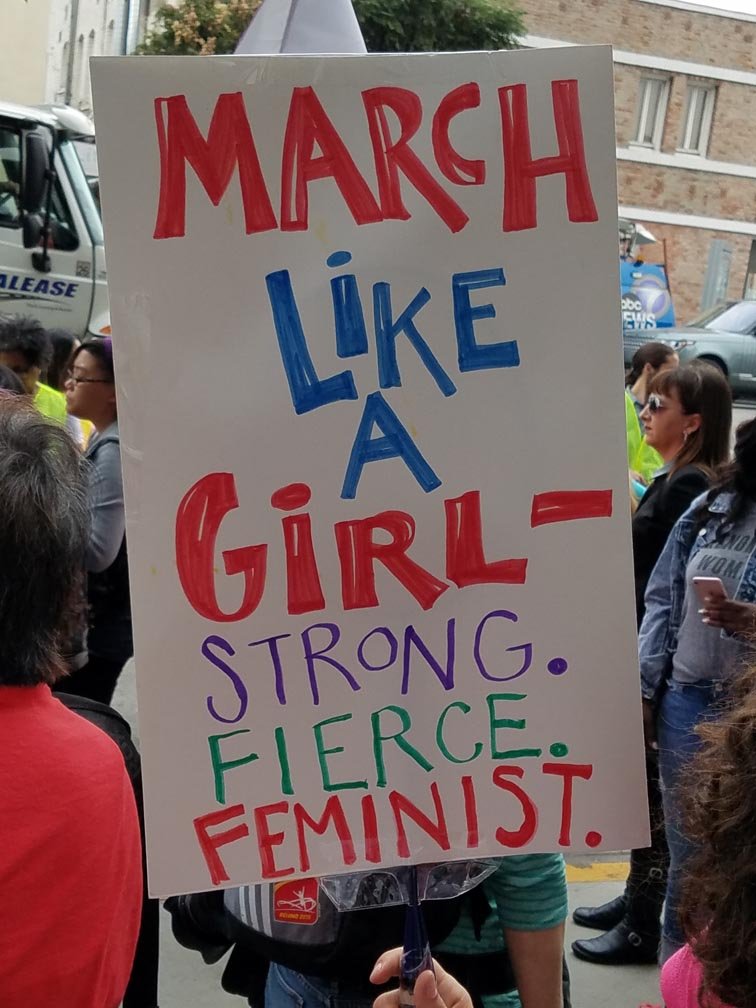
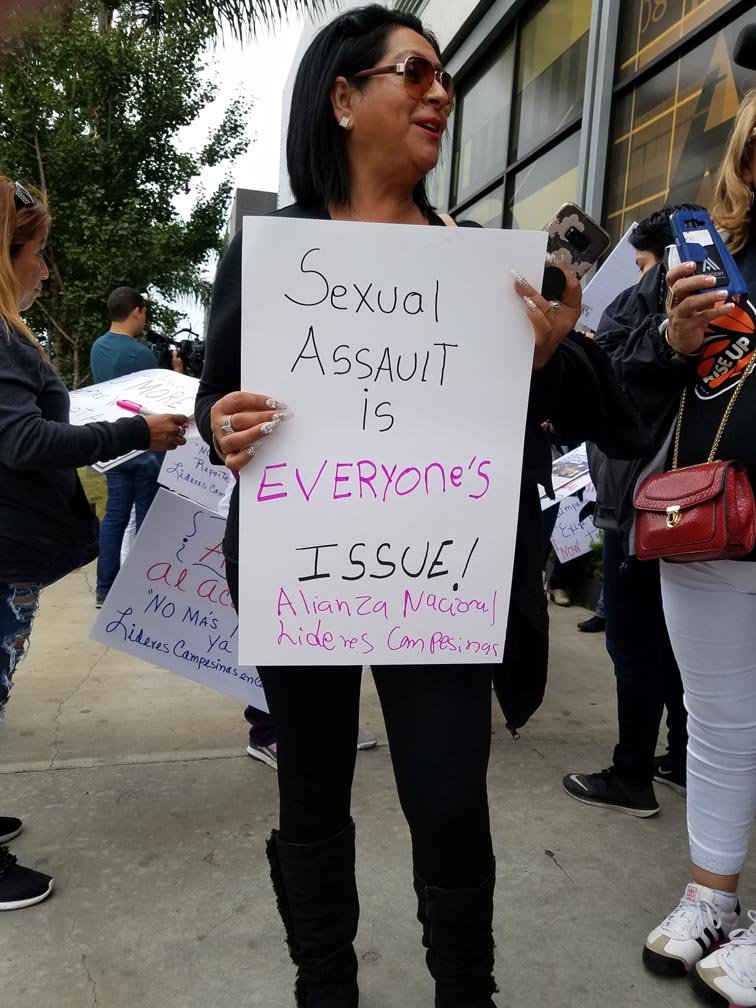
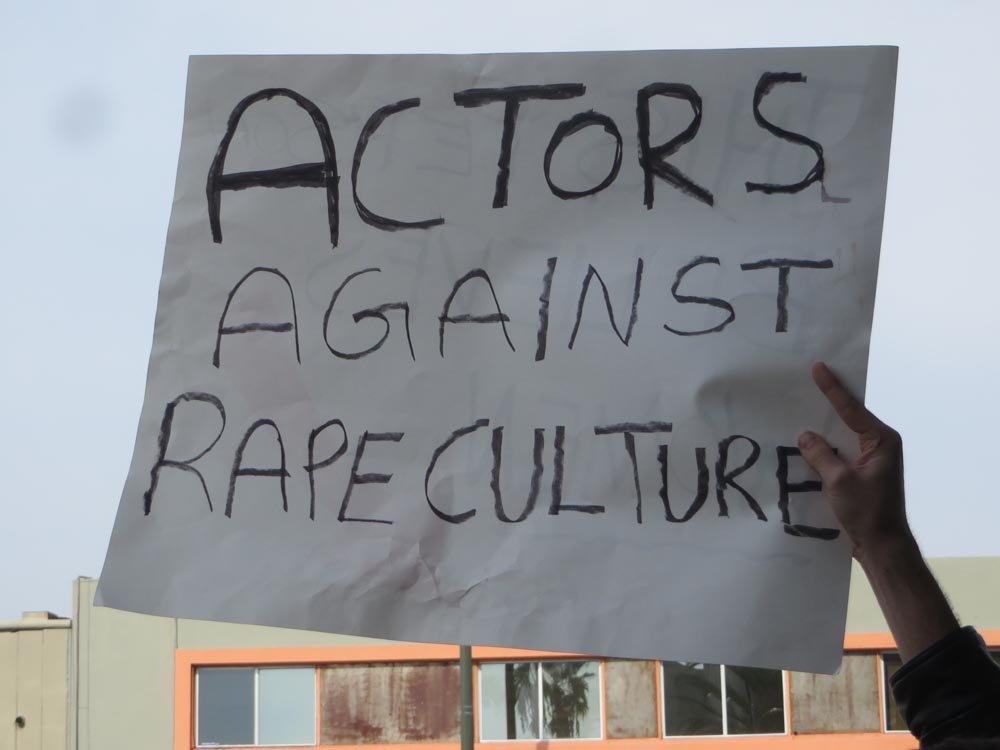
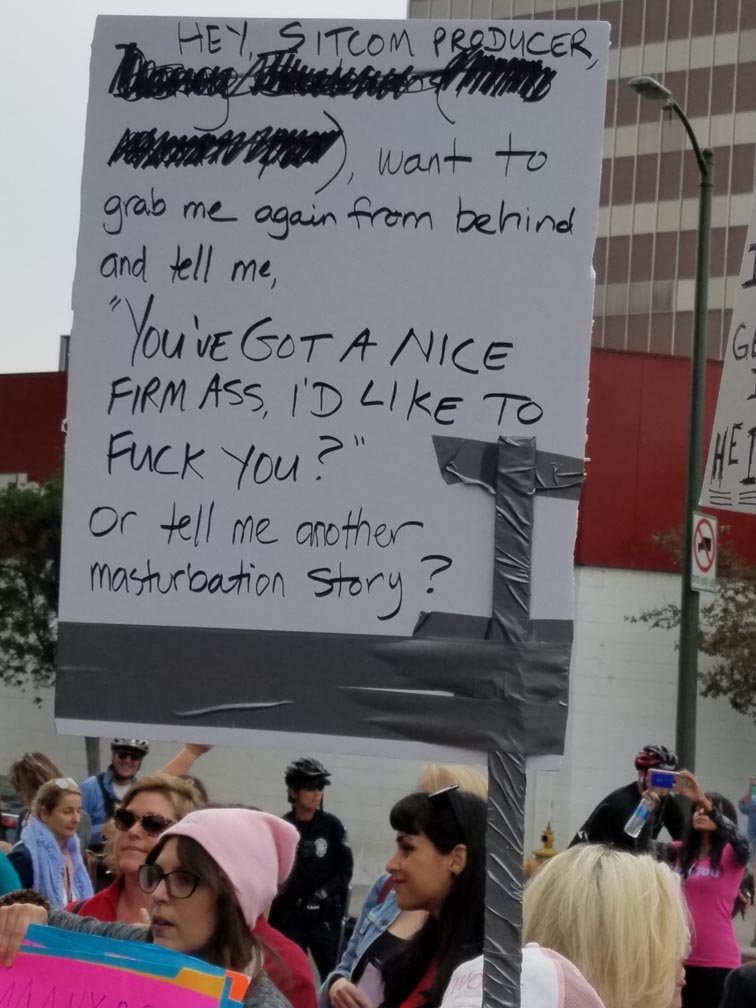
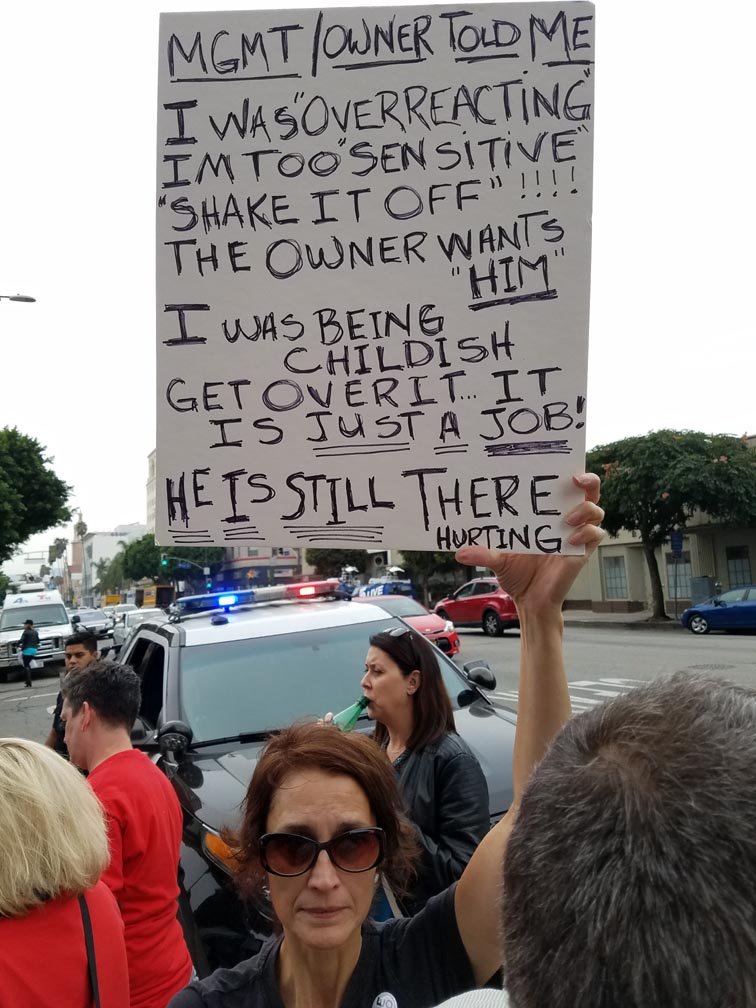
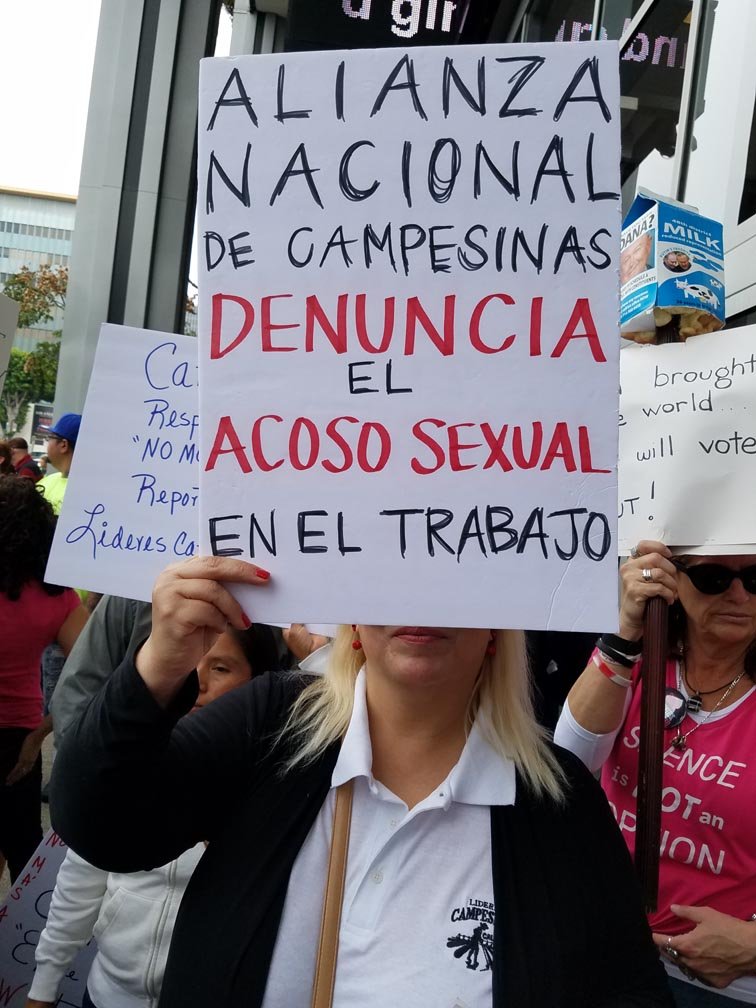
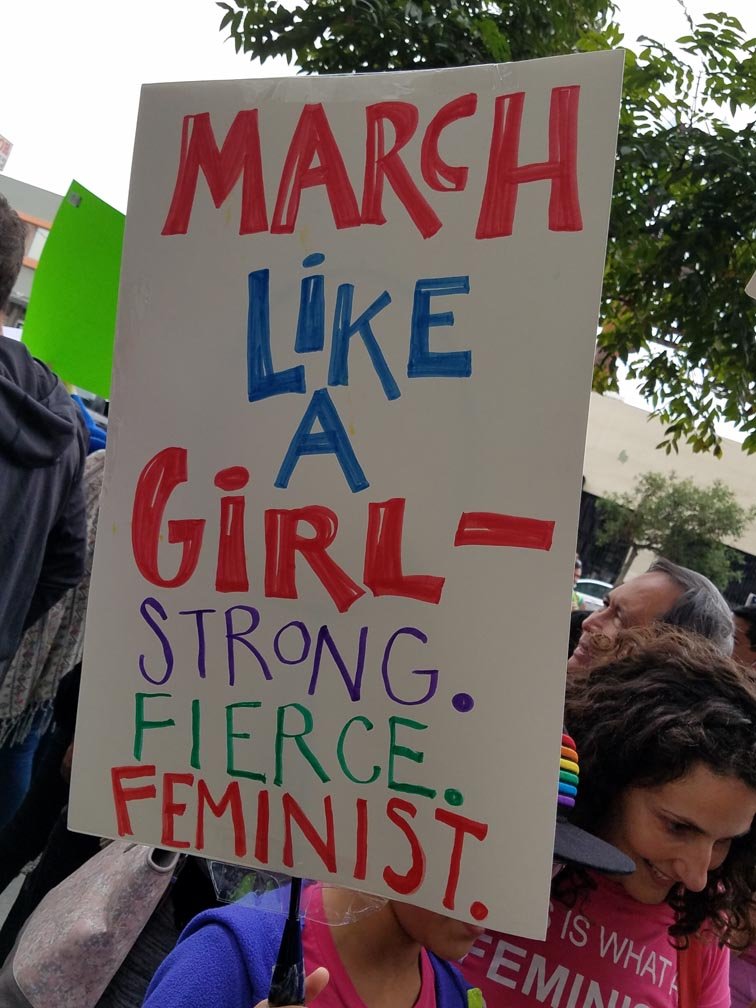

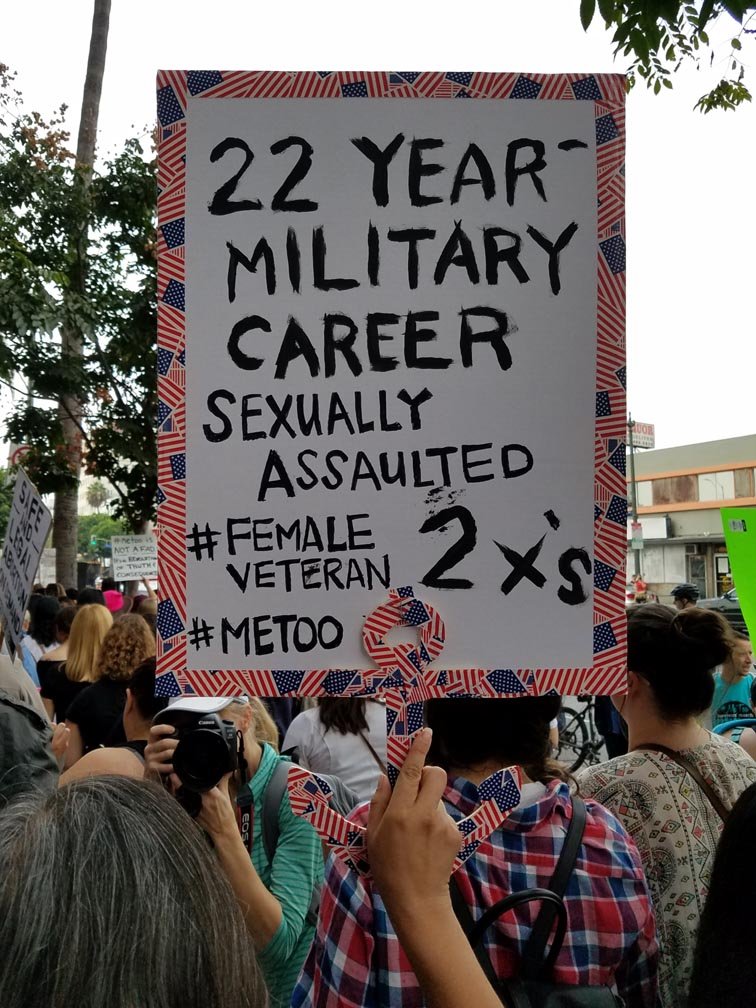
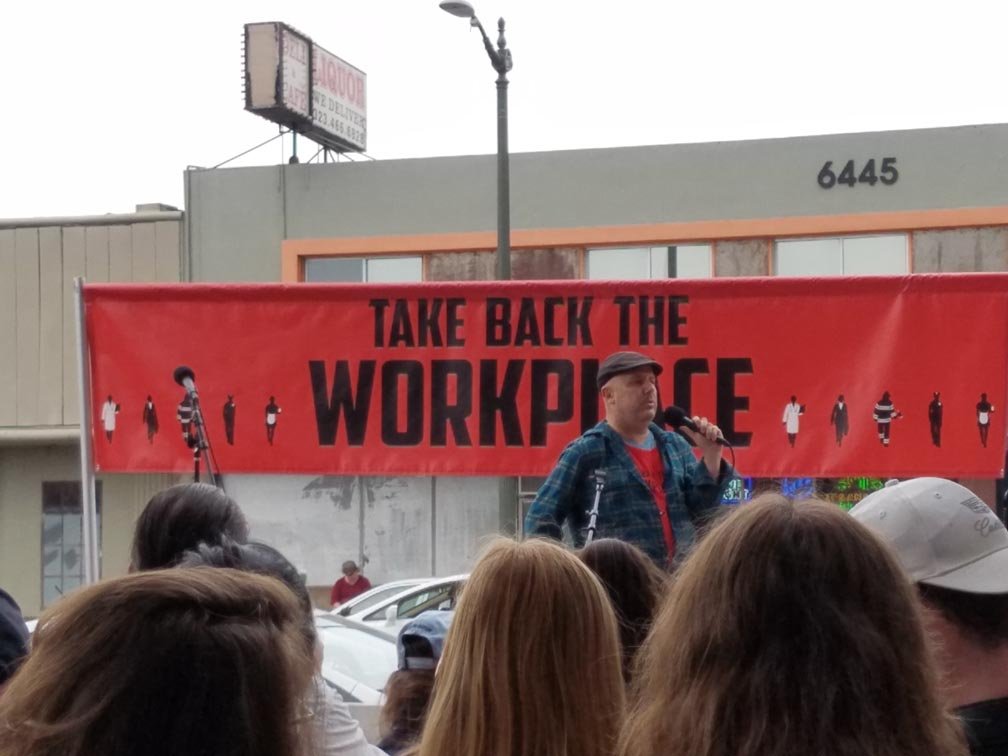
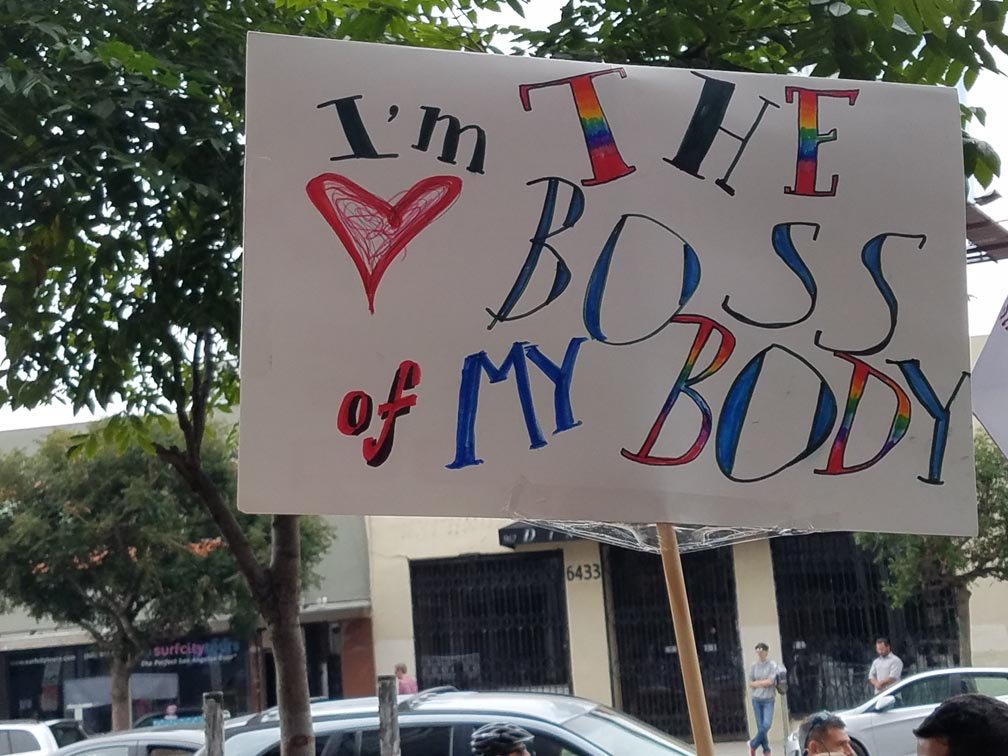
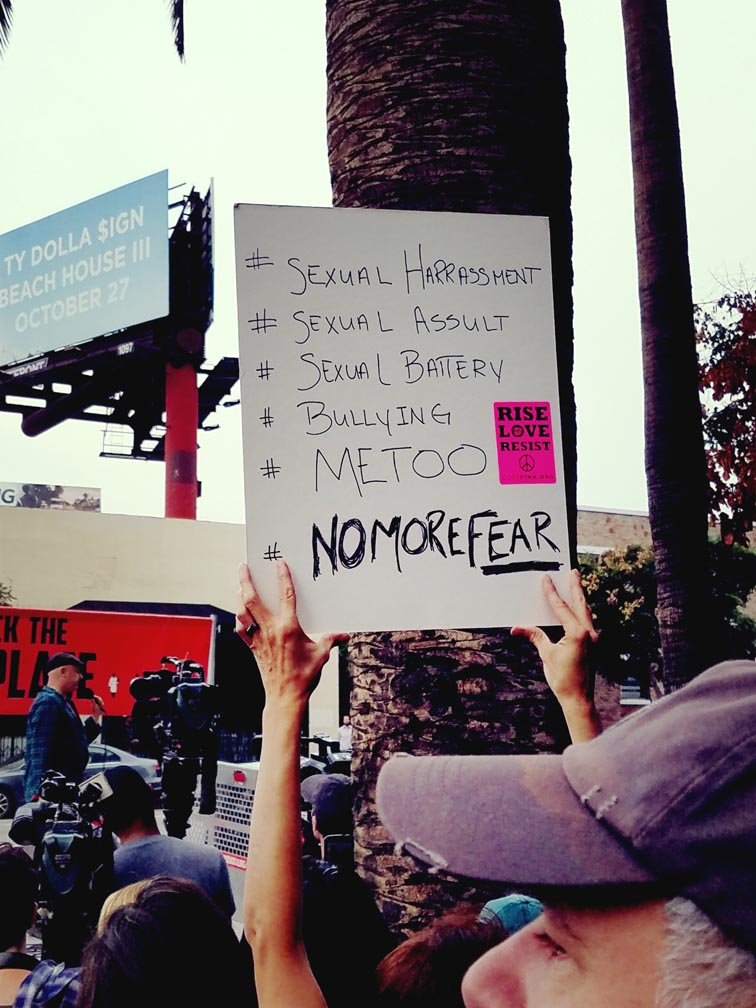
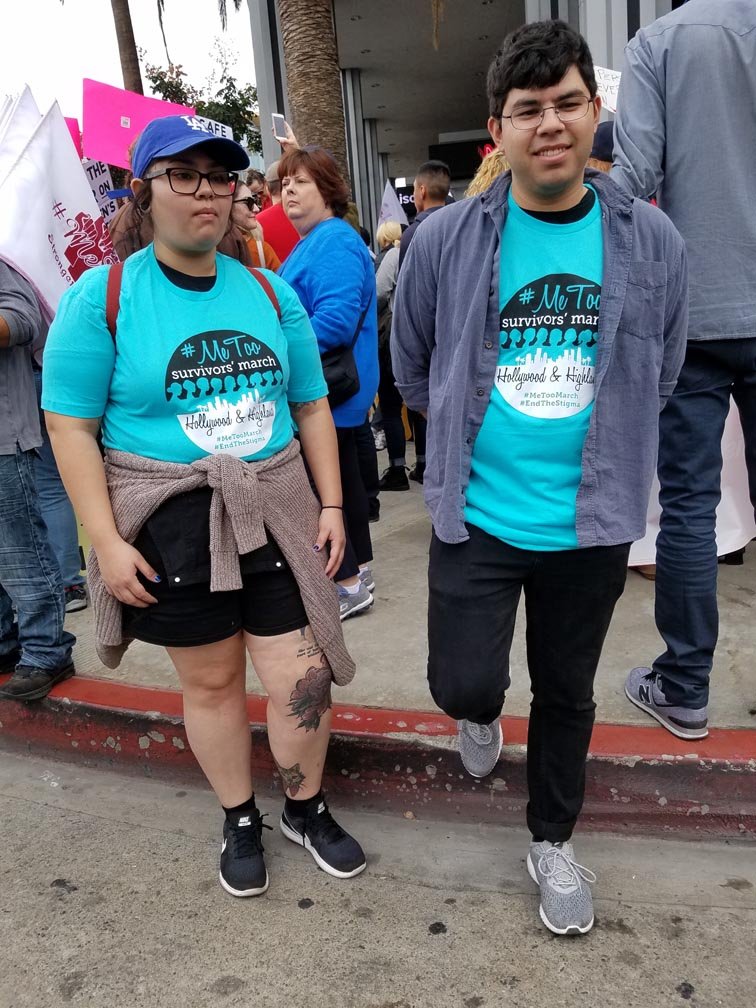
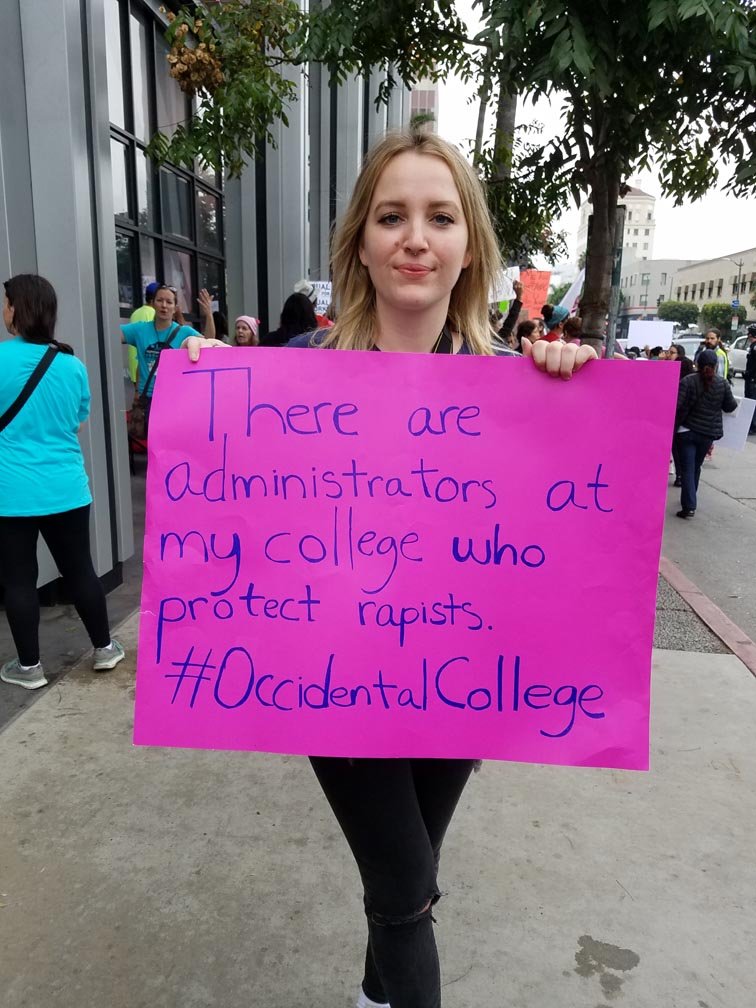
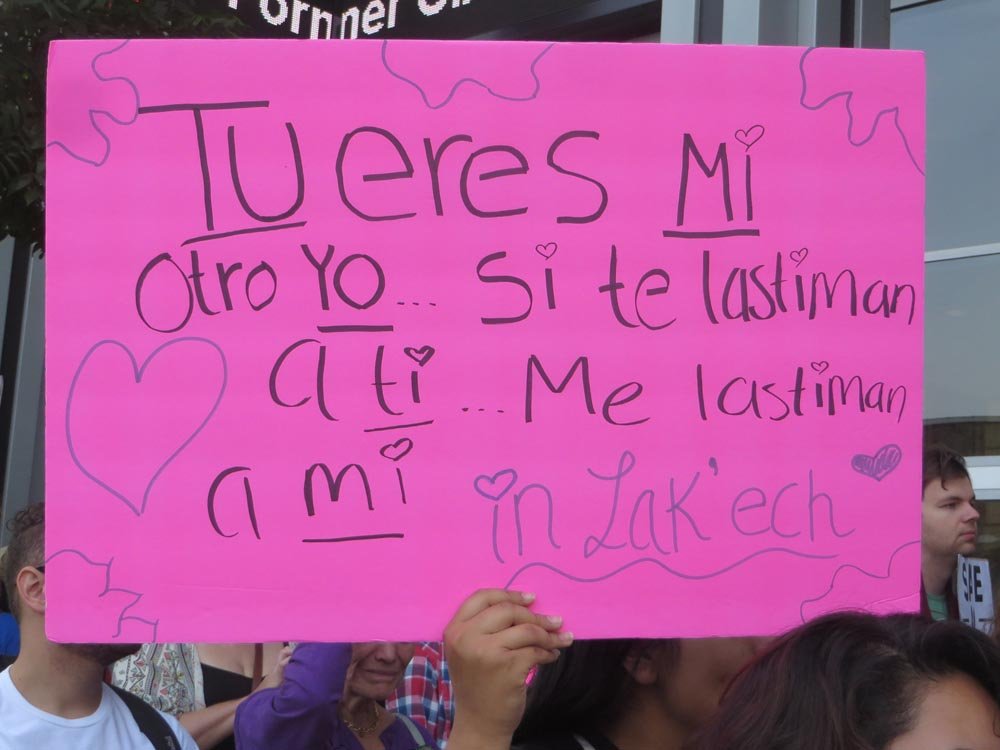
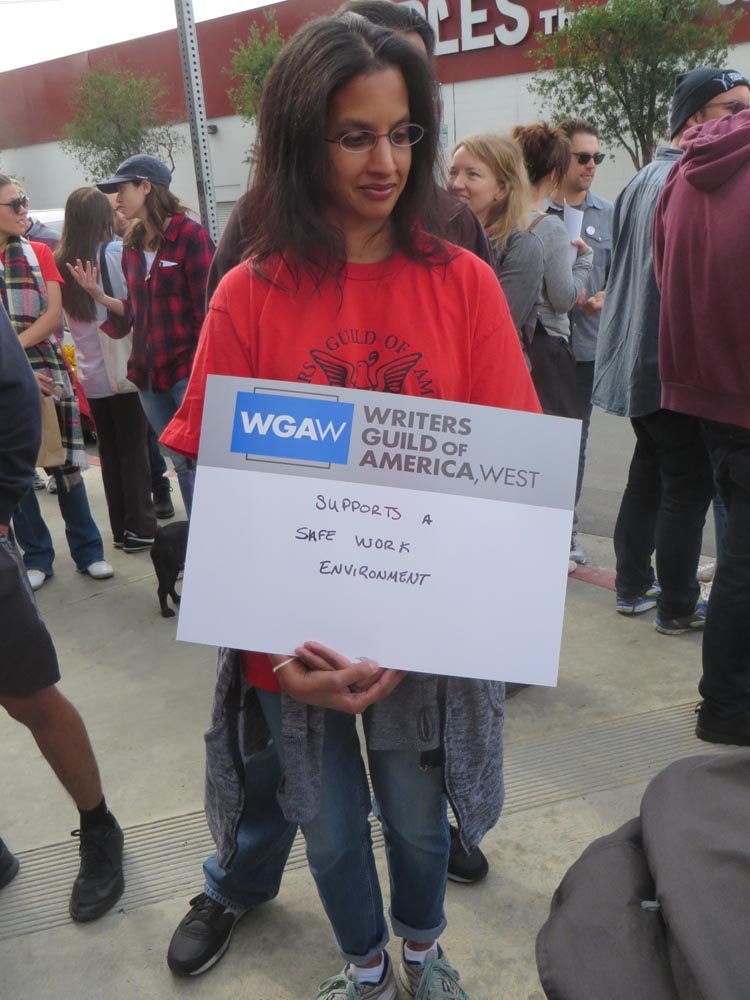
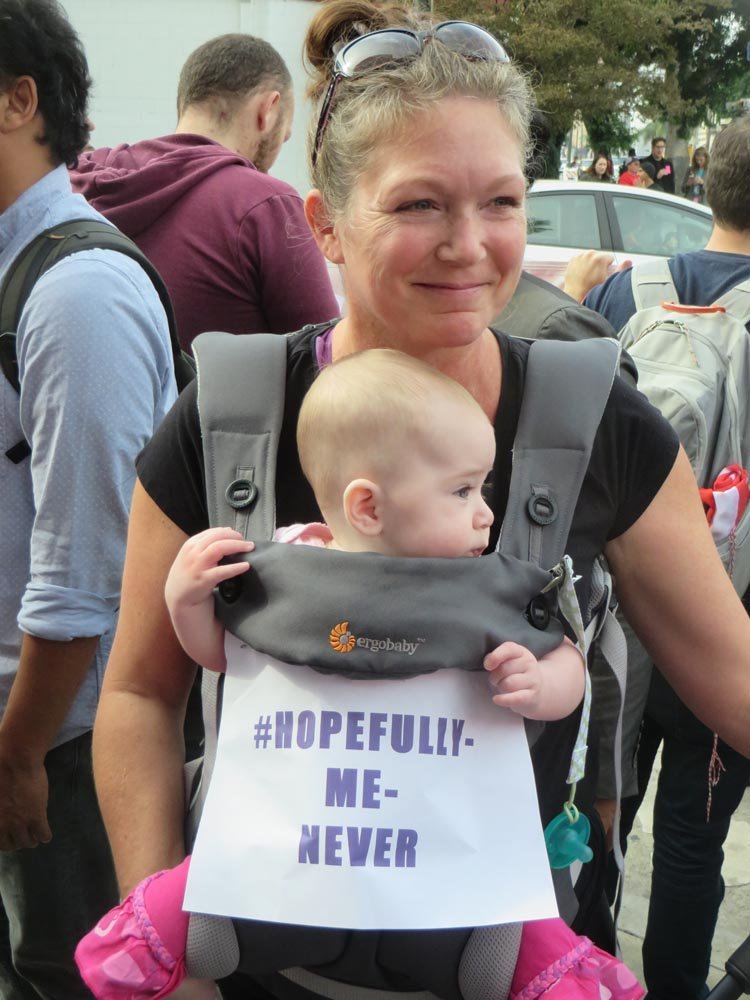
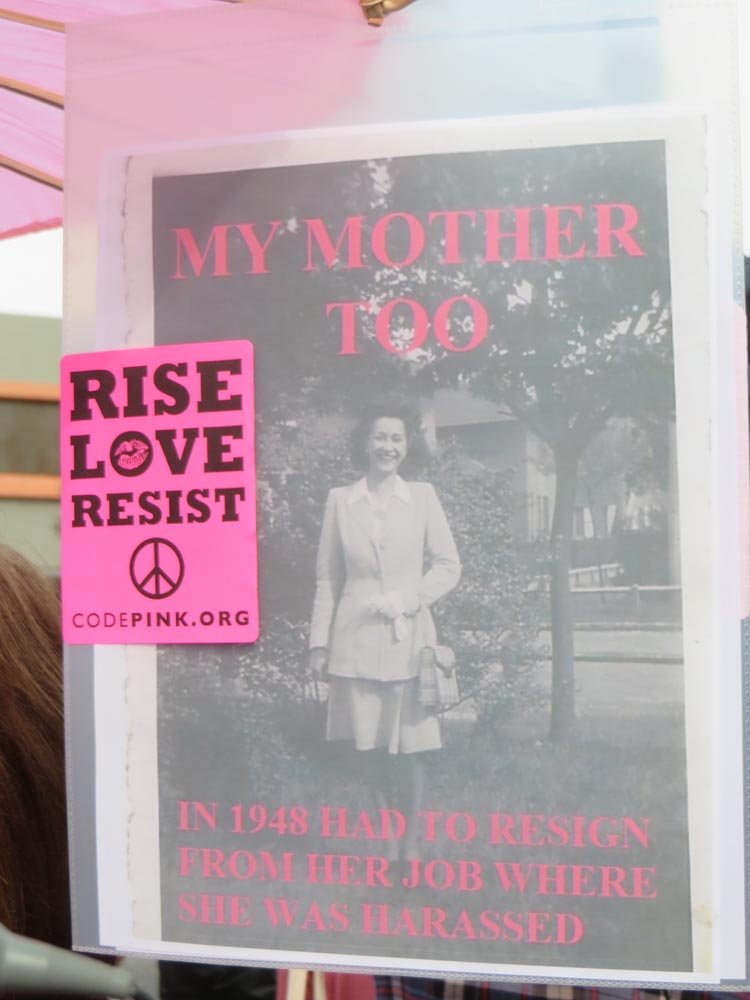
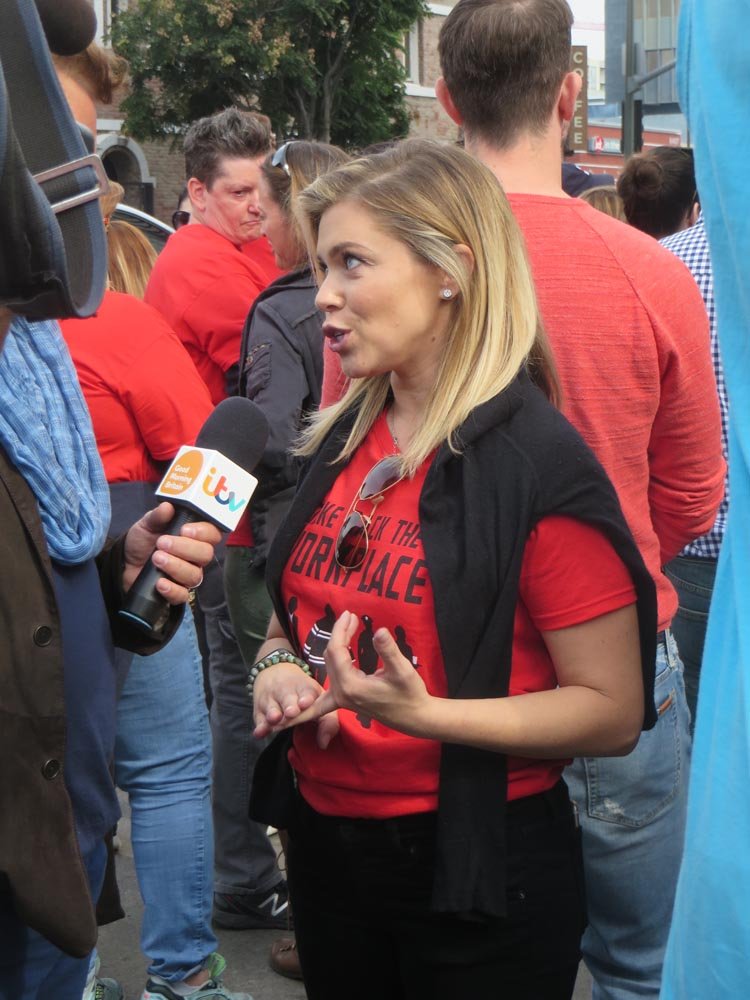
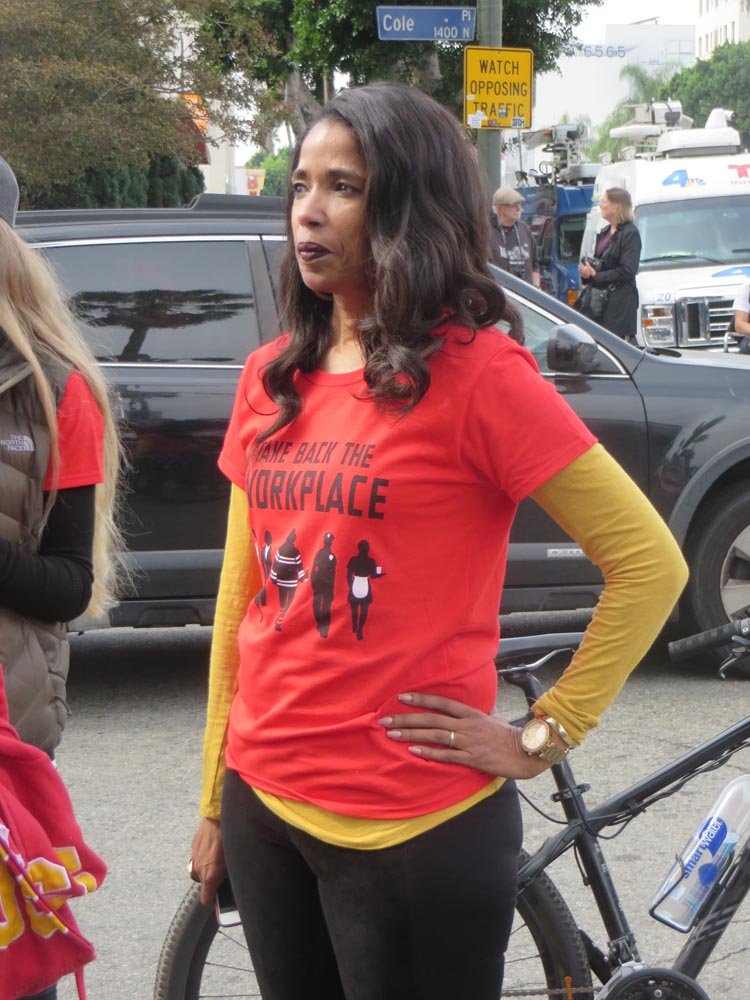
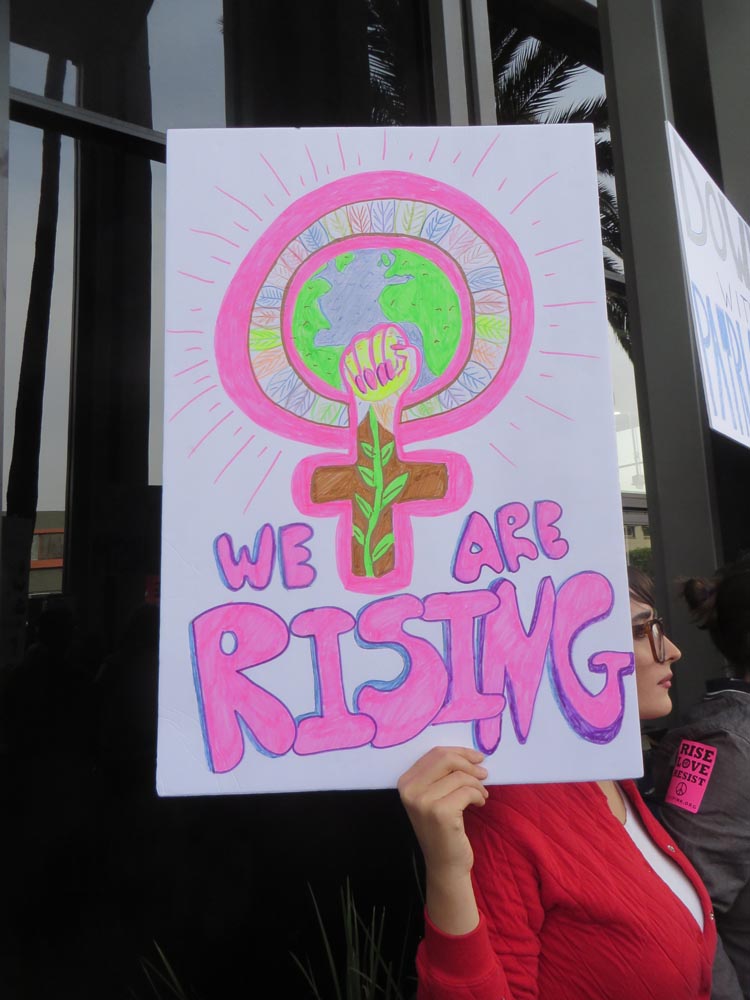
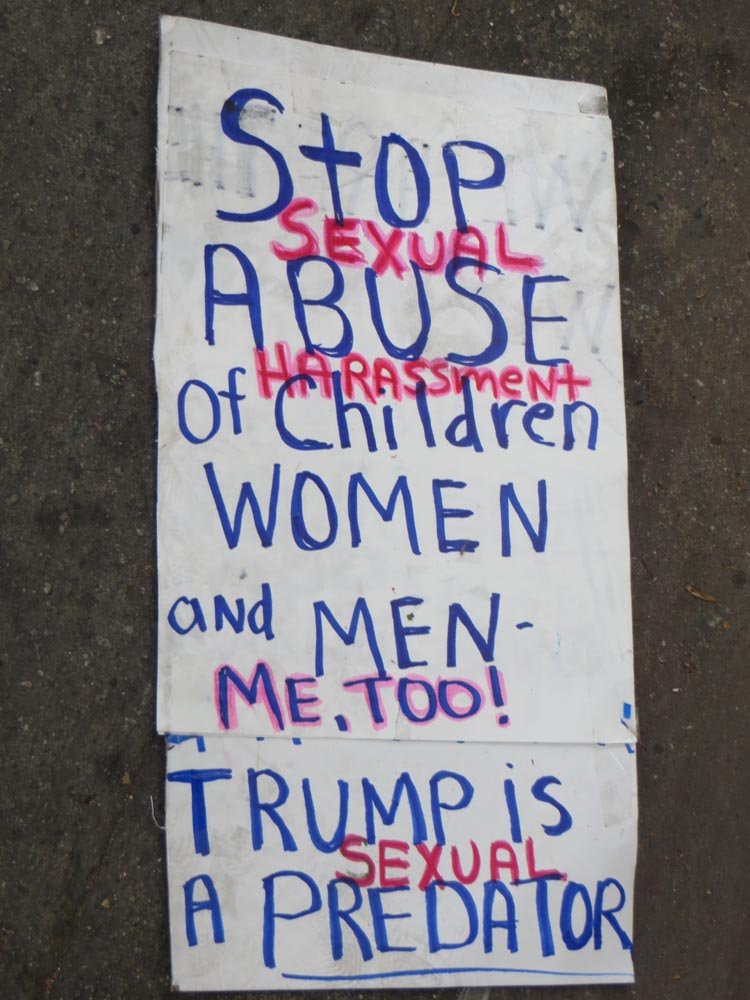
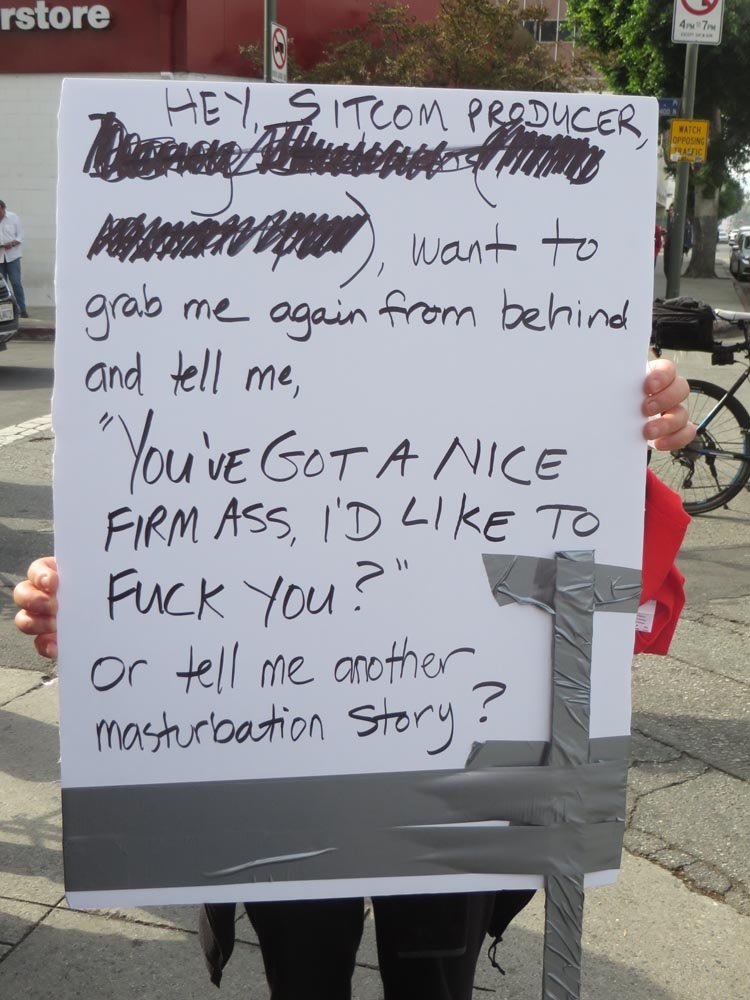
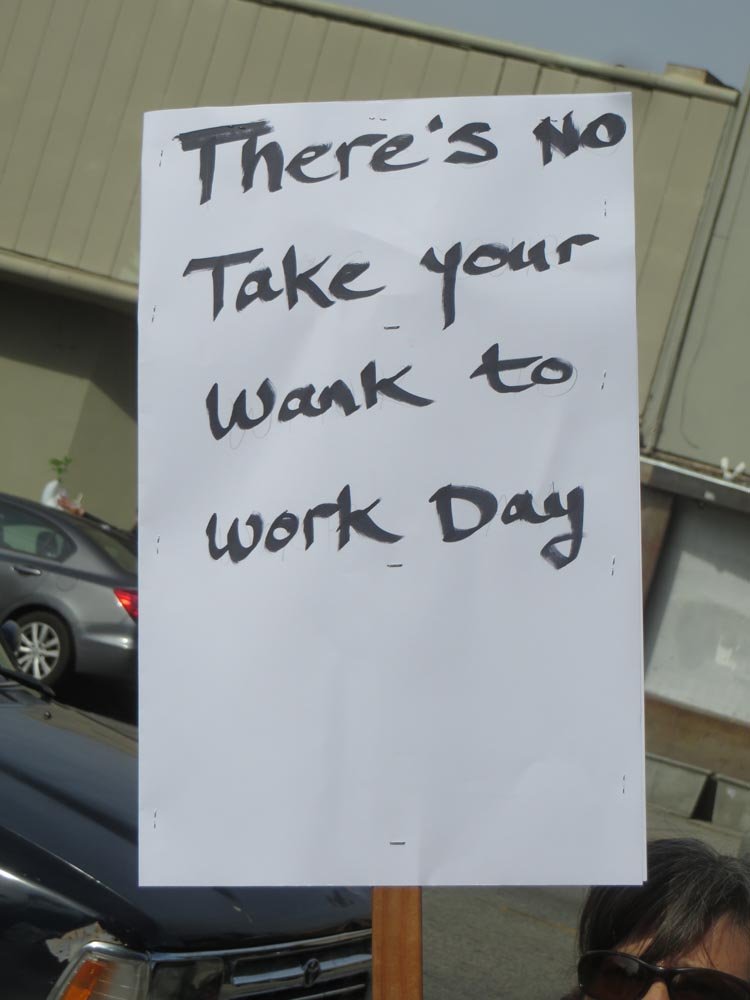
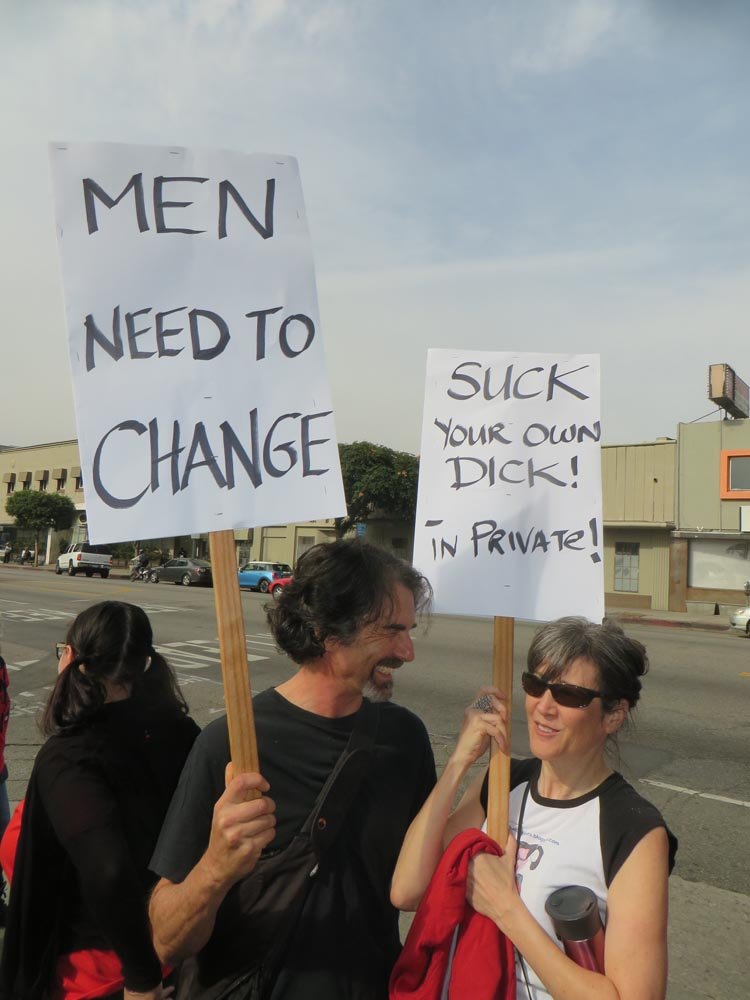
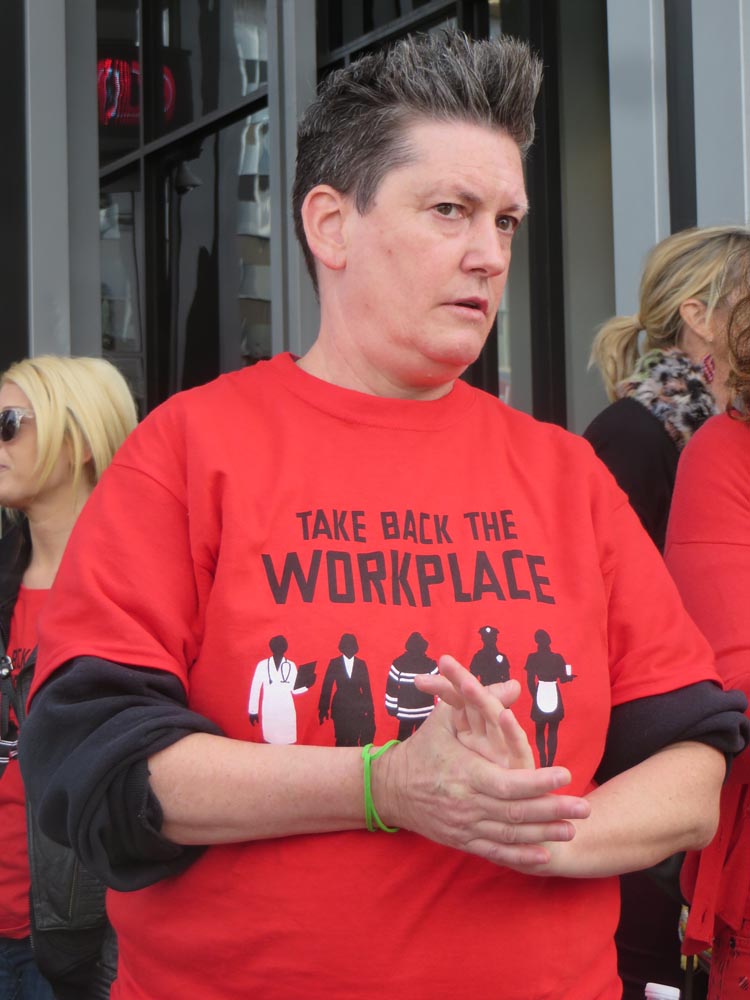
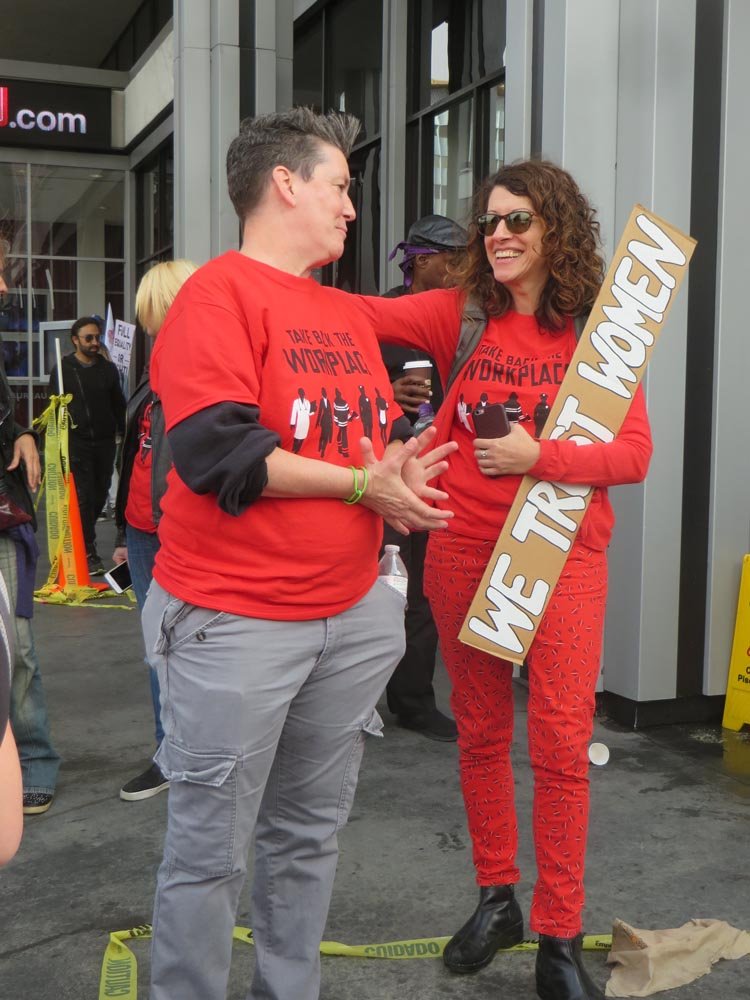
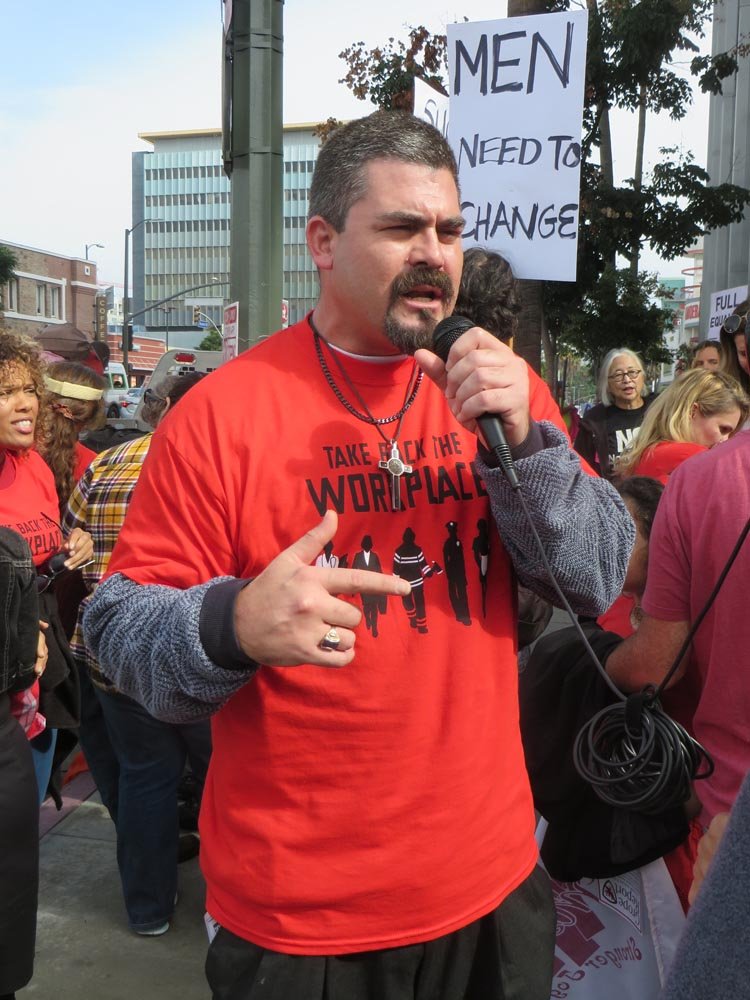
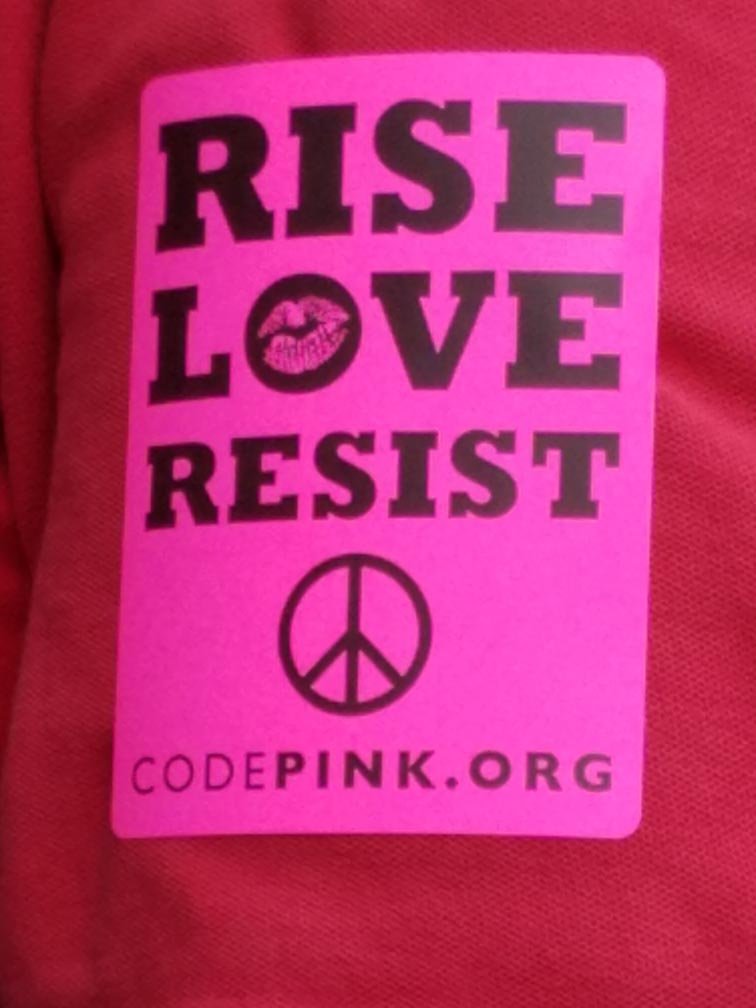
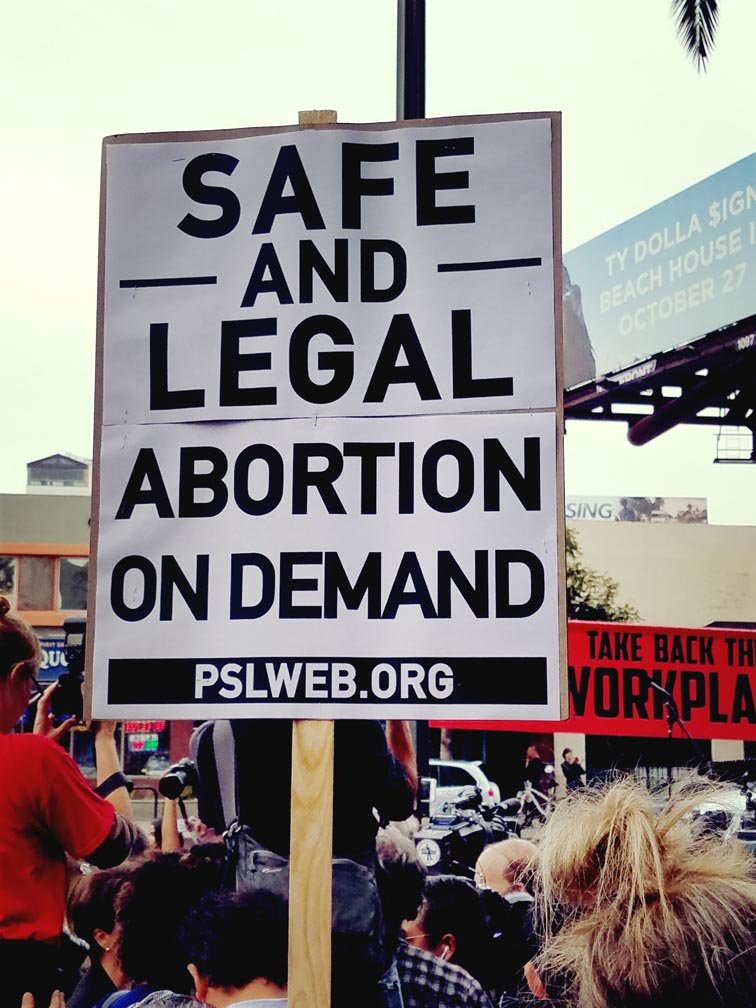
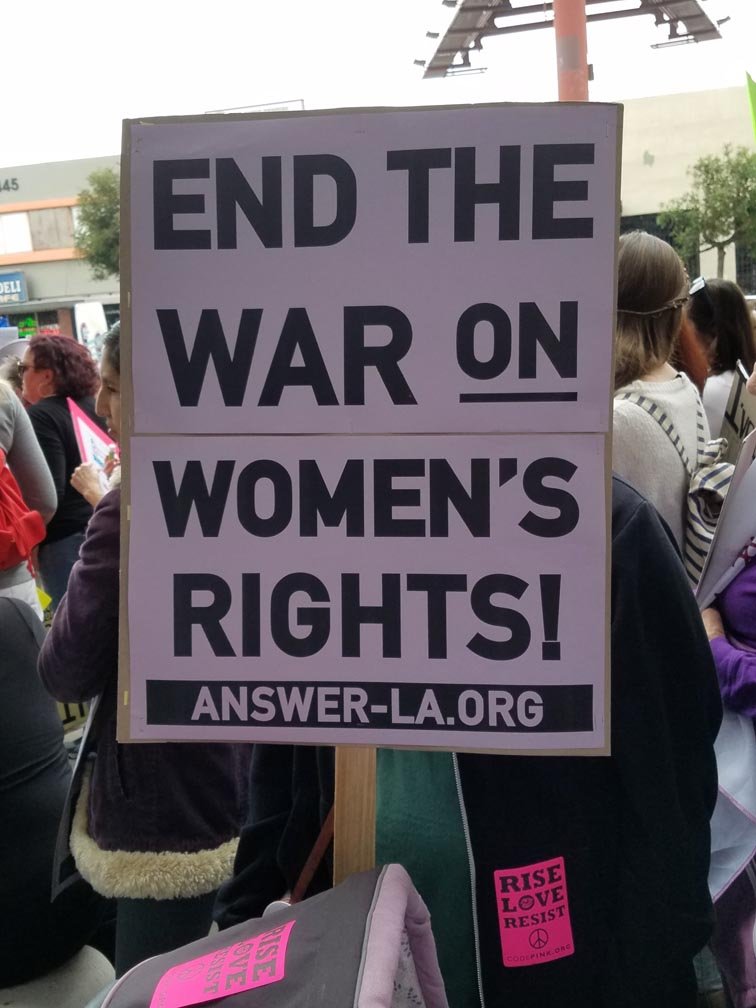
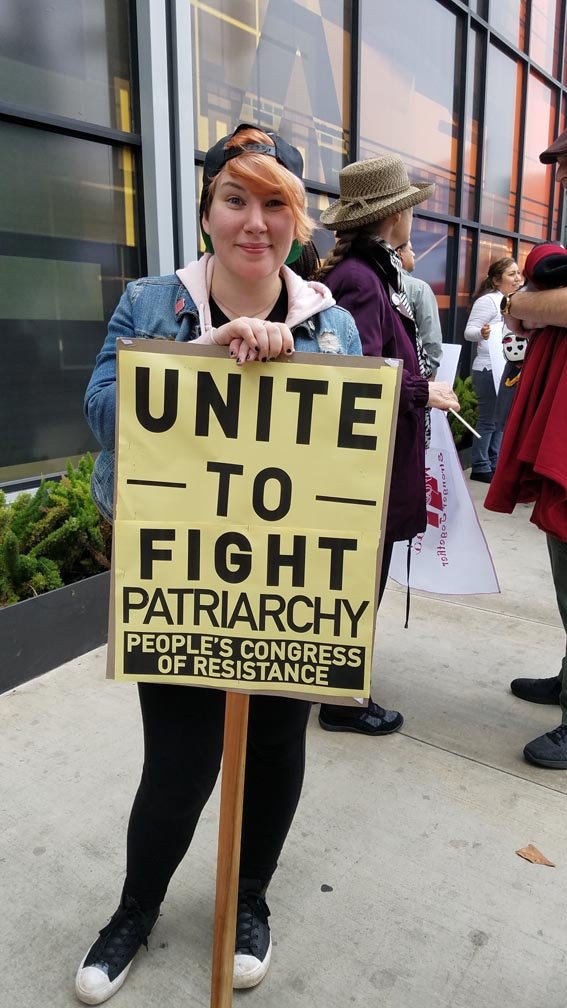
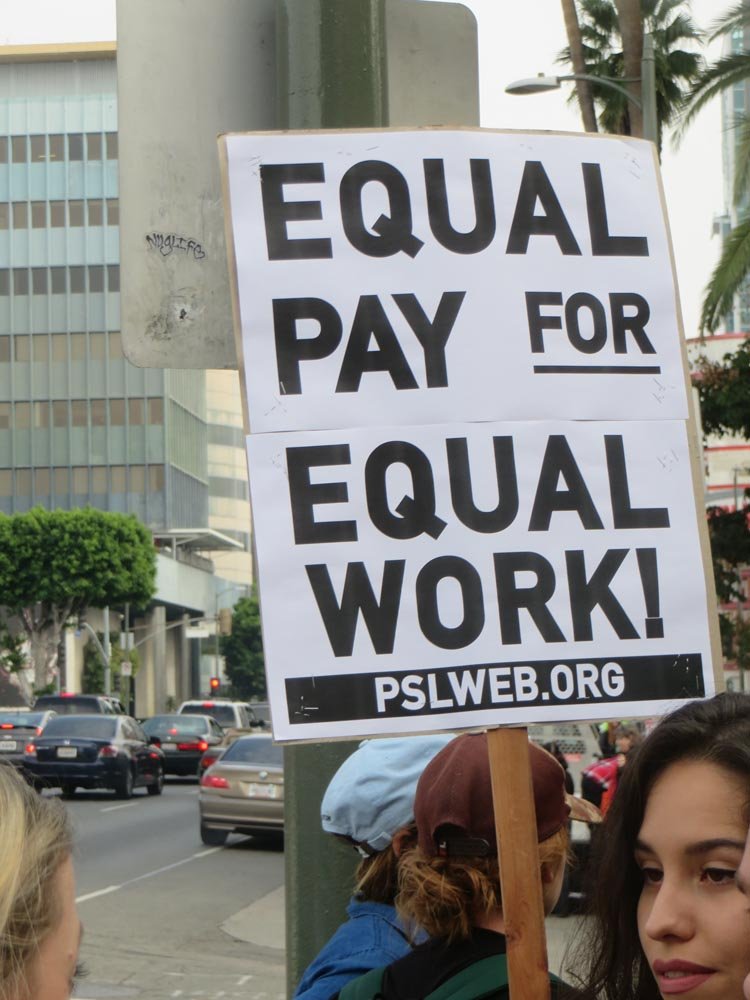
Letter to Walter Lippmann
LETTER FROM JACK SHEPHERD TO WALTER LIPPMANN
July 12, 1997
Dear Walter:
American medicine is dominated by the drug companies in alliance with the FDA and the majority of the doctors. It results in high costs and inferior medical treatment.
Drug companies cannot patent substances that occur naturally in the human body such as hormones. They cannot patent herbal remedies that have been used since ancient times. The cost of getting FBAA approval on a drug is enormous. Because of this and the inability to patent, no one is going to spend this money on hormones and herbal medicine.
The drug company – doctor – FDA combines push all kinds of risky and even life – threatening medicines. They will give you Valium for insomnia. It doesn’t work very well and is addictive if used for any length of time.
If they could patent melatonin parenthesis (a natural hormone) to combine would be pushing it as the great medical breakthrough on sleeping disorders that it really is. They must know that there are numerous papers from prestigious universities that have studied human use of melatonin and found it to be devoid of bad side effects.
Sincerely, Jack
P.S. I would like the paper on the ice diet returned
Jack Shepherd
Jack Shepherd (1919-1998)
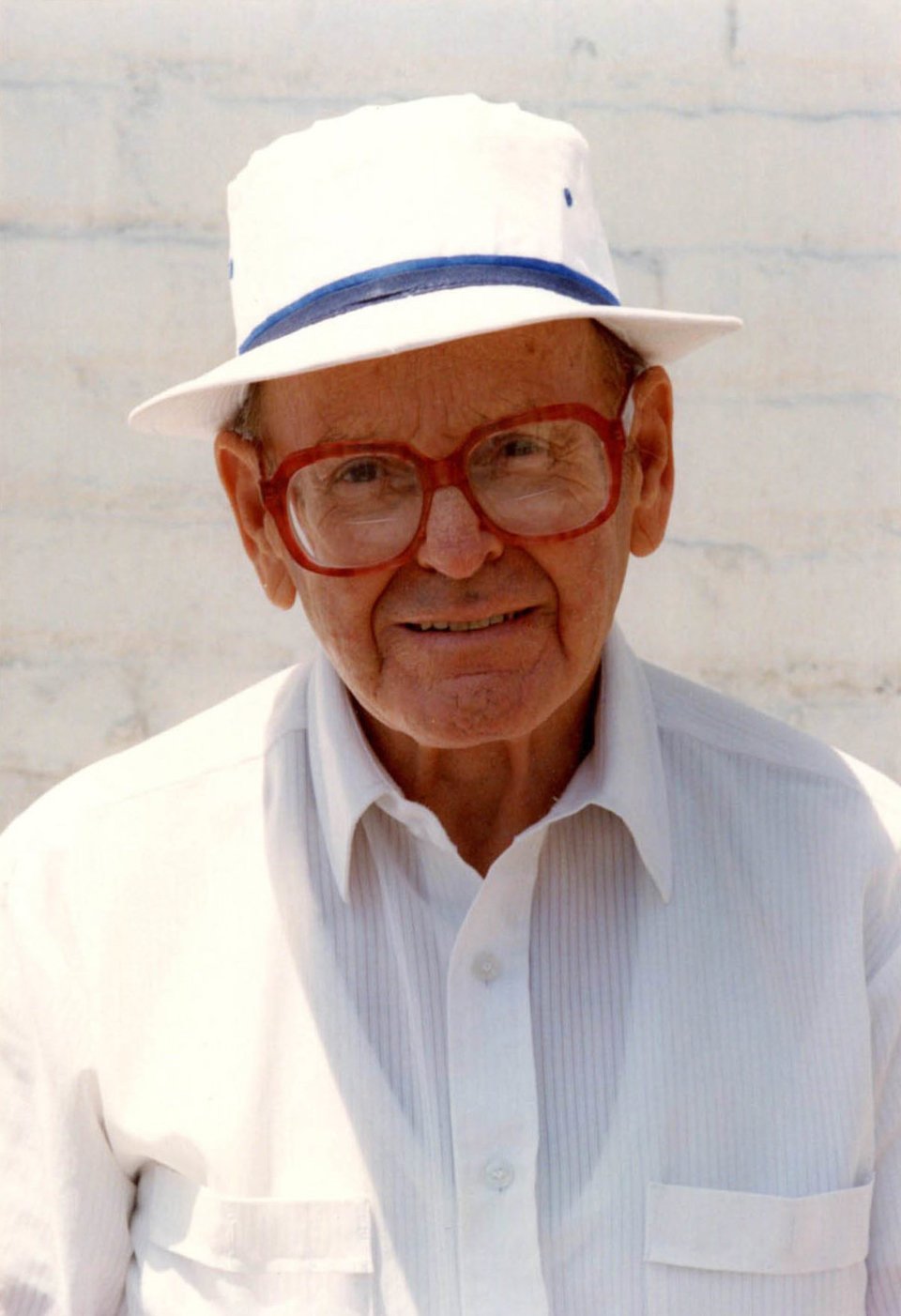
Jack Shepherd, a steelworker who headed a committee of a coalition of 25 locals in Southern California that tried to get workers involved in antiwar demonstrations last April and November, said that the attitude of the average worker was that “Nixon will bring the war to an end.”
http://www.nytimes.com/1971/12/06/archives/antiwar-groups-to-protest-here-activists-reject-new-tactic-at.html

Photos by Walter Lippmann, c. 1995.
BORN: May 5, 1918
DIED: 1998
Thoughts on the Eve of Returning to Cuba
Thoughts on the Eve of Returning to Cuba
by Walter Lippmann
Tlatelolco, Mexico, Saturday, September 3, 2016
Later this morning I’ll be off to Havana via Interjet, a Mexican airline which flies regularly. “Father, forgive me, for I have sinned:” It’s been nine months since my last time down, in December 2015. I’m looking forward to seeing whatever changes have taken place. I’m hoping to spend another three months, and plan to post regular reports of things done, places seen and people met.
Each time before I go, I try to post some final thoughts before leaving for the island where my impressions are altered or corrected by Cuban reality, as they always are. What follows are rough notes, and not in order of importance. I hope you’ll find them of interest. I’ll have to look back and the and see what actually happened. Will also plan to post some first impressions as soon as I’m settled in. Probably not until Sunday.
First-hand observations
It’s amazing how different Cuba is from a distance. That’s why it’s so important to actually GO to Cuba and see it for oneself. It’s also why Washington imposed, and continues to maintain, a travel ban on US citizens and residents.
The Obama administration has modified the ban, but it is still on the books. Vacationing and going to the beach remain violations of US law, even if not vigorously enforced, for now. Basically, Washington just does not want people from the US to see the country first hand, because, warts and all, it is so different from the hostile and tendentious image we’ve been fed ever since the earliest days.
You know: Cuba is a dictatorship. There are no human rights. Everyone is spied on. There is no Internet, and so on. The last example I saw was in that otherwise-objective piece about Cuba’s success in fighting the Zika virus which the main AP reporter in Cuba, in today’s Washington Post.
When I started following Cuba most closely, in the late 1990s, the problem was the lack of information, and most of what we got in the dominant capitalist media was tendentious and hostile. That’s still largely true, but, with the change toward a more formally normalized diplomatic relationship, that’s changed somewhat. Now we’re overwhelmed with information in the dominant media, and some of that is not unsympathetic, or downright friendly.
For example, the current issue of WESTWAYS, the magazine of the definitely NOT leftist Automobile Club of Southern California (AAA). It’s cover art and main headline is HOLA CUBA. The issue has eight full pages without advertising and it’s all presented in a friendly, encouraging tone.
If we can get it scanned and posted, I will share it. It must be very popular because, after standing on a waiting line and presenting my club membership, they were only willing to give me two copies. Who will be the lucky Cubans who get them?
Transportation
In Los Angeles, I more and more try to avoid driving. The driving culture has degenerated terribly, the streets are very crowded, and so on. I’ve begun to wonder if I can or should give up driving completely, but haven’t taken the plunge yet.
In LA, for example, I often walk to the markets and back with my groceries now, and they are each about a mile or so away from where I live. I’m 72 years young, by the way, but I really like getting away from the house, the phone and the computer. It’s good exercise and I feel relaxed, though often pretty sweaty, when finally I’m back home.
Mexico City is far, far worse. The local Metro system, is older but far superior in its routes to the lovely one we have in Los Angeles, and reasonably priced. But for someone not familiar with the Metro and the city, Uber, which wasn’t here during my last visit, amazed me with its efficiency.
The friend I’m staying with here is Peter Gellert, whom I met in the US in the 1970s. He moved here forty years ago, gave up his US citizenship and became a legal Mexican citizen, 100%. Here he works as a translator and is an activist in Mexican and solidarity movement politics.
Yesterday we walked down to the street, and summoned an Uber car on his smartphone. A nice, new car arrived in under five minutes, driven by a 62 year-old retired government worker who can’t afford to not work on his pension. This Uber car took me to an engagement with a friend, and another took me home later, in comfort and quiet.
Up til now, I’ve not yet learned the Uber system in Los Angeles, but I am certain that I will now. And will learn how to use a smartphone as well. I’m not a Luddite, but have avoided learning some of this modern technology. Though my crystal ball isn’t as clear as it was when I was 20 and 30, I found a lot go ponder in the current issue of the London ECONOMIST, in its cover feature, Uberworld.
The structure of world transport, and of the working class which drives it, is changing. While it’s not all for the better, there’s a something I think we can learn from this new system. Just sayin’…
There’s no Uber in Cuba, but an interesting multi-level system of state-owned, cooperative, private individuals both licenced and not, bicitaxis and hitch-hiking. Hitching is quite widespread in Cuba, and is entirely safe. (It seem to help being a pretty young woman.)
Smartphones
Same is true for those smartphones which I’ve been avoiding up to now. Last year, when I was in Cuba at the time of Pope Francis’ visit, the Cubans set up a wonderful media center for all the accredited journalists.
One day I noticed a woman talking into a smartphone which she had posted on a tripod. She was broadcasting, online, LIVE, though a hand-held personal cell phone. I’d love to be able to do that! I promise to pick up this skill as soon as I can.
Last year I wasn’t able to post materials to my website for some technical reason I never could figure out with certainty. And still haven’t, but am working on that. I’ve spent almost all of today working on that, and seem to have made some progress. I’ll let you know when (and if), that’s successfully completed. If my hands weren’t so busy writing, I’d cross my fingers…<g>
Therefore my reports and the CubaNews translations will continue to go out through the Yahoo News group to which I’ve posted most materials for over fifteen years. You can subscribe, to the news group here: https://groups.yahoo.com/neo/groups/CubaNews/info
US blockade against Cuba still very much in place
While the Obama administration’s decision to normalized diplomatic relations with Cuba was a good thing, which we can all appreciate, Washington’s goals toward Cuba and its revolutionary government haven’t changed. Not one bit.
So long as the Cuban Adjustment Act of 1966, the Torricelli law of 1992 and the Helms-Burton law of 1996 remain on the books, the official foreign policy of the US government can be summarized as “over throw the Cuban government and restore capitalism there.”
And let’s not forget Guantanamo, the military base and torture camp Washington has occupied for over a century. Cuba doesn’t cash the “rent” checks Washington sends Havana every year (well, they DID cash the first one in 1959, but none since then…)
There’s no way to briefly summarize just how the US blockade functions, but a comprehensive summary can be found at the report Cuba presented to the United Nations General Assembly last year. It was adopted by an overwhelming majority, with no abstentions and only two “no” votes: The United States and Israel. It’s Resolution 69/5 of the United Nations General Assembly:
“Necessity of ending the economic, commercial and financial blockade imposed by the United States of America against Cuba.”
Where I’ll be staying
This time I’ll be staying in a new casa particular for the first time. I’ve been there and seen it, but haven’t stayed there before. It’s conveniently located in Vedado. And, hey, WOW, my new landlady is coming to pick me up at the airport! That’s new, and different, and pleasing. It will cost $25 CUC per day. I have a private room and bath, air conditioning and adequate privacy.
Local news sources
In Los Angeles, I take the LA TIMES and the NEW YORK TIMES in print every day. They do provide a wealth of information, but are edited with a fiercely pro-capitalist slant.
Those Sunday New York Times ads offering apartments for sale in New York City for as much as $50 million dollars and those thousand dollar dresses (I don’t wear them and wouldn’t buy one for anyone I know) are part of a kind of cultural psy-war on the population.
Who wouldn’t want to have these things, but what’s wrong with YOU if you cannot afford one? And these papers are overwhelmingly filled with advertising.
Back when Gerardo Hernandez of the Cuban Five was living in the US federal prison in Victorville, California, I used to print the Cuban papers out for him every day. Granma and Juventud Rebelde, and sometimes Trabajadores, and even the humor newspaper P’alante could be downloaded from their website, and Gerardo was able to get them. Among his other talents, he’s a cartoonist as well.
Cuban newspapers are much smaller, due to their limited resources: eight pages for the daily editions and 16 pages for JR on Sunday, and Granma on Friday. And not one word of commercial advertising. The Cuban papers of course have their own slant, a Cuban revolutionary perspective, but very little fluff and filler.
Since Gerardo went home, I have only occasionally looked at the print editions, and even less frequently printed them out. Now I’ll be glad to see what Cubans see every day. It takes a lot less time to get through them and their counterpart US dailies, but sometimes it seems there’s more information in the Cuban papers.
My favorite Cuban magazine is one aimed at teens and young adults, Somos Jovenes (We The Youth). CubaNews has presented English translations of some its articles over the years. It takes up issues of burning interest to young people, as well as historical themes.
They try to to show the continuity between the the country’s struggles to defend its national sovereignty, and the challenges of today’s young people. Among these are gender, sex, sexuality, violence against women, drugs, rock ‘n’ roll as well as big political themes. Here are some samples I’m very proud to have brought: Somos Jovenes in English translation
Unlike the way people in the US (and here in Mexico) who have the money, can have high-speed Internet access for a low price 24-7, in Cuba I have to go out to an Internet access point, either an ETECSA office or a WiFi point, which are growing rapidly across the country.
In the US, I don’t watch TV at all, but in Cuba the national newscasts in the evening and early afternoon presents a succinct summary of the days’ important events, from the Cuban leadership’s perspective. I’ll miss Amy Goodman’s Democracy Now, which I prefer to listen to than watch.
The spectrum of political discussion has widened considerably in recent years with the explosion of the Internet. Many individuals for and against the government have blogs. Hostile ones, like those of Yoani Sanchez, touted all over the world by opponents of the Cuban system, in some ways predominant.
I’m not aware of many pro-revolutionary blogs, those which actively defend the revolutionary process against its critics. Perhaps the best-known is Iroel Sanchez’s La Pupila Insomne, which vigorously defends the revolutionary process. Singer Silvio Rodriguez and historian Esteban Morales also have actively revolutionary blogs.
LGBT issues Journalist Francisco Rodriquez Cruz is a militant gay rights activist, whose day job is as a journalist at the weekly Trabajadores. There are other gay activists, but Paquito, as he’s usually called, is the best-known. You’ll sense his stance the minute you see his blog: https://paquitoeldecuba.com/ It’s mostly in Spanish, but he has a nice section with some of his articles in English translation.
Marijuana, Cannabis, Ganja
Cuba has a very tough, law-and-order approach to marijuana, but with many countries, especially in Latin America, moving toward legalizing or decriminalizing the substance, will this have any effect on Cuban thinking?
While federal law continues to define marijuana as a substance with no redeeming medical value, Washington has just begun to expand research on its possible medical utility. And now most US states have made it legal under varying conditions. My home state, California, is set to legalize it for all adults without any medical necessity having to be cited. It’s a multi-billion dollar business.
When people from the US come to Cuba, some will naturally want to bring it with them. Anyone who does this at present would be crazy, but it is a subject about which I wonder if there will be some evolution in local thinking. Alcohol and smoking (in Cuba they call it “tobaccoism” are recognized today as public health problems, along with obesity and etc.
Medical uses of marijuana
I’m someone with multiple documented medical diagnoses, including Chronic Lymphocytic Leukemia, Myelodysplasic Syndrome, which are blood cancers, obesity, hypertension, sleep apnea, a torn miniscus and tendonitis. In recent years, I have found some relief through the use of occasional small amounts of the edible forms of marijuana, for which I have the required medical recommendation.
Naturally, I didn’t bring any along on this trip, though from what my host tells me, it’s virtually completely legal here in Mexico City in small quantities for personal consumption.
Volunteer opportunities
If your Spanish is good enough to translate, CubaNews is always looking for people willing to translate materials from the Cuban media in Spanish into English for the broader world world.
We can’t pay you in anything but gratitude, but there’s lots of that, and I promise also to send books, pamphlets and magazines from Cuba to those who’d like to help bring these Cuban ideas out to a broader audience. I’m guided by a great deal of curiosity.
There are innumerable things I’ve been wondering about and looking to see how the city has changed, if the culture is being affected by the growing number of people from the US who have been visiting, what new stores and restaurants have popped up, and so on and on and on.
My bottom line is that given the immense obstacles the Cuban Revolution faces, it’s pretty much of a miracle that it’s still here every day. Thanks to an imaginative leadership, and solidarity in various forms from many sources. Cuba is still with us.
Given recent negative trends in Latin America, this is all the more the case. US policy and Washington’s policies are the biggest factor limiting Cuba’s growth, development. The blockade makes all of these problems worse in and of themselves, and limits the country’s ability to confront its demons, some of which are home-grown.
Please remember this: When I was 20 and 30, I was a very self-. righteous young activist. I thought I had all the answers. Today, I know I don’t even have the questions. Cuba, to me, is, as Captain Hugh N. Mulzac titled his memoir, A Star to Steer By.
It’s not a model to be copied, but an example and an experience to be studied and learned from. Some of its successful experiences can help people elsewhere to learn how to build a better world for themselves and their children.
It’s now 2:00 AM Saturday morning. I have to put my stuff together and get ready to go to the airport in the morning. I’m sure there are important matters I’ve forgotten here, but readers will remind me of them. I still have to shower, shave, dress and then try to stay awake for the next few hours so I can get to the airport on time later in the morning. Thanks to all of you who have taken the time to read these thoughts. Your reactions will be of interest. I encourage you to share them. I’m very tired now.
Tlatelolco, Mexico City
September 3, 2016
2:03 AM
Some Thoughts On the Eve of Returning to Cuba
Some Thoughts the Eve of Returning to Cuba
Tlatelolco, Mexico, Saturday, September 3, 2016
Later this morning I’ll be off to Havana via Interjet, a Mexican airline which flies regularly. “Father, forgive me, for I have sinned:” It’s been nine months since my last time down, in December 2015. I’m looking forward to seeing whatever changes have taken place. I’m hoping to spend another three months, and plan to post regular reports of things done, places seen and people met.
Each time before I go, I try to post some final thoughts before leaving for the island where my impressions are altered or corrected by Cuban reality, as they always are. What follows are rough notes, and not in order of importance. I hope you’ll find them of interest. I’ll have to look back and the and see what actually happened. Will also plan to post some first impressions as soon as I’m settled in. Probably not until Sunday.
First-hand observations
It’s amazing how different Cuba is from a distance. That’s why it’s so important to actually GO to Cuba and see it for oneself. It’s also why Washington imposed, and continues to maintain, a travel ban on US citizens and residents.
The Obama administration has modified the ban, but it is still on the books. Vacationing and going to the beach remain violations of US law, even if not vigorously enforced, for now. Basically, Washington just does not want people from the US to see the country first hand, because, warts and all, it is so different from the hostile and tendentious image we’ve been fed ever since the earliest days.
You know: Cuba is a dictatorship. There are no human rights. Everyone is spied on. There is no Internet, and so on. The last example I saw was in that otherwise-objective piece about Cuba’s success in fighting the Zika virus which the main AP reporter in Cuba, in today’s Washington Post.
When I started following Cuba most closely, in the late 1990s, the problem was the lack of information, and most of what we got in the dominant capitalist media was tendentious and hostile. That’s still largely true, but, with the change toward a more formally normalized diplomatic relationship, that’s changed somewhat. Now we’re overwhelmed with information in the dominant media, and some of that is not unsympathetic, or downright friendly.
For example, the current issue of WESTWAYS, the magazine of the definitely NOT leftist Automobile Club of Southern California (AAA). It’s cover art and main headline is HOLA CUBA. The issue has eight full pages without advertising and it’s all presented in a friendly, encouraging tone.
If we can get it scanned and posted, I will share it. It must be very popular because, after standing on a waiting line and presenting my club membership, they were only willing to give me two copies. Who will be the lucky Cubans who get them?
Transportation
In Los Angeles, I more and more try to avoid driving. The driving culture has degenerated terribly, the streets are very crowded, and so on. I’ve begun to wonder if I can or should give up driving completely, but haven’t taken the plunge yet.
In LA, for example, I often walk to the markets and back with my groceries now, and they are each about a mile or so away from where I live. I’m 72 years young, by the way, but I really like getting away from the house, the phone and the computer. It’s good exercise and I feel relaxed, though often pretty sweaty, when finally I’m back home.
Mexico City is far, far worse. The local Metro system, is older but far superior in its routes to the lovely one we have in Los Angeles, and reasonably priced. But for someone not familiar with the Metro and the city, Uber, which wasn’t here during my last visit, amazed me with its efficiency.
The friend I’m staying with here is Peter Gellert, whom I met in the US in the 1970s. He moved here forty years ago, gave up his US citizenship and became a legal Mexican citizen, 100%. Here he works as a translator and is an activist in Mexican and solidarity movement politics.
Yesterday we walked down to the street, and summoned an Uber car on his smartphone. A nice, new car arrived in under five minutes, driven by a 62 year-old retired government worker who can’t afford to not work on his pension. This Uber car took me to an engagement with a friend, and another took me home later, in comfort and quiet.
Up til now, I’ve not yet learned the Uber system in Los Angeles, but I am certain that I will now. And will learn how to use a smartphone as well. I’m not a Luddite, but have avoided learning some of this modern technology. Though my crystal ball isn’t as clear as it was when I was 20 and 30, I found a lot go ponder in the current issue of the London ECONOMIST, in its cover feature, Uberworld.
The structure of world transport, and of the working class which drives it, is changing. While it’s not all for the better, there’s a something I think we can learn from this new system. Just sayin’…
There’s no Uber in Cuba, but an interesting multi-level system of state-owned, cooperative, private individuals both licenced and not, bicitaxis and hitch-hiking. Hitching is quite widespread in Cuba, and is entirely safe. (It seem to help being a pretty young woman.)
Smartphones
Same is true for those smartphones which I’ve been avoiding up to now. Last year, when I was in Cuba at the time of Pope Francis’ visit, the Cubans set up a wonderful media center for all the accredited journalists.
One day I noticed a woman talking into a smartphone which she had posted on a tripod. She was broadcasting, online, LIVE, though a hand-held personal cell phone. I’d love to be able to do that! I promise to pick up this skill as soon as I can.
Last year I wasn’t able to post materials to my website for some technical reason I never could figure out with certainty. And still haven’t, but am working on that. I’ve spent almost all of today working on that, and seem to have made some progress. I’ll let you know when (and if), that’s successfully completed. If my hands weren’t so busy writing, I’d cross my fingers…<g>
Therefore my reports and the CubaNews translations will continue to go out through the Yahoo News group to which I’ve posted most materials for over fifteen years. You can subscribe, to the news group here: https://groups.yahoo.com/neo/groups/CubaNews/info
US blockade against Cuba still very much in place
While the Obama administration’s decision to normalized diplomatic relations with Cuba was a good thing, which we can all appreciate, Washington’s goals toward Cuba and its revolutionary government haven’t changed. Not one bit.
So long as the Cuban Adjustment Act of 1966, the Torricelli law of 1992 and the Helms-Burton law of 1996 remain on the books, the official foreign policy of the US government can be summarized as “over throw the Cuban government and restore capitalism there.”
And let’s not forget Guantanamo, the military base and torture camp Washington has occupied for over a century. Cuba doesn’t cash the “rent” checks Washington sends Havana every year (well, they DID cash the first one in 1959, but none since then…)
There’s no way to briefly summarize just how the US blockade functions, but a comprehensive summary can be found at the report Cuba presented to the United Nations General Assembly last year. It was adopted by an overwhelming majority, with no abstentions and only two “no” votes: The United States and Israel. It’s Resolution 69/5 of the United Nations General Assembly:
“Necessity of ending the economic, commercial and financial blockade imposed by the United States of America against Cuba.”
Where I’ll be staying
This time I’ll be staying in a new casa particular for the first time. I’ve been there and seen it, but haven’t stayed there before. It’s conveniently located in Vedado. And, hey, WOW, my new landlady is coming to pick me up at the airport! That’s new, and different, and pleasing. It will cost $25 CUC per day. I have a private room and bath, air conditioning and adequate privacy.
Local news sources
In Los Angeles, I take the LA TIMES and the NEW YORK TIMES in print every day. They do provide a wealth of information, but are edited with a fiercely pro-capitalist slant.
Those Sunday New York Times ads offering apartments for sale in New York City for as much as $50 million dollars and those thousand dollar dresses (I don’t wear them and wouldn’t buy one for anyone I know) are part of a kind of cultural psy-war on the population.
Who wouldn’t want to have these things, but what’s wrong with YOU if you cannot afford one? And these papers are overwhelmingly filled with advertising.
Back when Gerardo Hernandez of the Cuban Five was living in the US federal prison in Victorville, California, I used to print the Cuban papers out for him every day. Granma and Juventud Rebelde, and sometimes Trabajadores, and even the humor newspaper P’alante could be downloaded from their website, and Gerardo was able to get them. Among his other talents, he’s a cartoonist as well.
Cuban newspapers are much smaller, due to their limited resources: eight pages for the daily editions and 16 pages for JR on Sunday, and Granma on Friday. And not one word of commercial advertising. The Cuban papers of course have their own slant, a Cuban revolutionary perspective, but very little fluff and filler.
Since Gerardo went home, I have only occasionally looked at the print editions, and even less frequently printed them out. Now I’ll be glad to see what Cubans see every day. It takes a lot less time to get through them and their counterpart US dailies, but sometimes it seems there’s more information in the Cuban papers.
My favorite Cuban magazine is one aimed at teens and young adults, Somos Jovenes (We The Youth). CubaNews has presented English translations of some its articles over the years. It takes up issues of burning interest to young people, as well as historical themes. They try to to show the continuity between the the country’s struggles to defend its national sovereignty, and the challenges of today’s young people. Among these are gender, sex, sexuality, violence against women, drugs, rock ‘n’ roll as well as big political themes. Here are some samples I’m very proud to have brought: Somos Jovenes in English translation
Unlike the way people in the US (and here in Mexico) who have the money, can have high-speed Internet access for a low price 24-7, in Cuba I have to go out to an Internet access point, either an ETECSA office or a WiFi point, which are growing rapidly across the country.
In the US, I don’t watch TV at all, but in Cuba the national newscasts in the evening and early afternoon presents a succinct summary of the days’ important events, from the Cuban leadership’s perspective. I’ll miss Amy Goodman’s Democracy Now, which I prefer to listen to than watch.
The spectrum of political discussion has widened considerably in recent years with the explosion of the Internet. Many individuals for and against the government have blogs. Hostile ones, like those of Yoani Sanchez, touted all over the world by opponents of the Cuban system, in some ways predominant.
I’m not aware of many pro-revolutionary blogs, those which actively defend the revolutionary process against its critics. Perhaps the best-known is Iroel Sanchez’s La Pupila Insomne, which vigorously defends the revolutionary process. Singer Silvio Rodriguez and historian Esteban Morales also have actively revolutionary blogs.
LGBT issues Journalist Francisco Rodriquez Cruz is a militant gay rights activist, whose day job is as a journalist at the weekly Trabajadores. There are other gay activists, but Paquito, as he’s usually called, is the best-known. You’ll sense his stance the minute you see his blog: https://paquitoeldecuba.com/ It’s mostly in Spanish, but he has a nice section with some of his articles in English translation.
Marijuana, Cannabis, Ganja
Cuba has a very tough, law-and-order approach to marijuana, but with many countries, especially in Latin America, moving toward legalizing or decriminalizing the substance, will this have any effect on Cuban thinking?
While federal law continues to define marijuana as a substance with no redeeming medical value, Washington has just begun to expand research on its possible medical utility. And now most US states have made it legal under varying conditions. My home state, California, is set to legalize it for all adults without any medical necessity having to be cited. It’s a multi-billion dollar business.
When people from the US come to Cuba, some will naturally want to bring it with them. Anyone who does this at present would be crazy, but it is a subject about which I wonder if there will be some evolution in local thinking. Alcohol and smoking (in Cuba they call it “tobaccoism” are recognized today as public health problems, along with obesity and etc.
Medical uses of marijuana
I’m someone with multiple documented medical diagnoses, including Chronic Lymphocytic Leukemia, Myelodysplasic Syndrome, which are blood cancers, obesity, hypertension, sleep apnea, a torn miniscus and tendonitis. In recent years, I have found some relief through the use of occasional small amounts of the edible forms of marijuana, for which I have the required medical recommendation.
Naturally, I didn’t bring any along on this trip, though from what my host tells me, it’s virtually completely legal here in Mexico City in small quantities for personal consumption.
Volunteer opportunities
If your Spanish is good enough to translate, CubaNews is always looking for people willing to translate materials from the Cuban media in Spanish into English for the broader world world.
We can’t pay you in anything but gratitude, but there’s lots of that, and I promise also to send books, pamphlets and magazines from Cuba to those who’d like to help bring these Cuban ideas out to a broader audience. I’m guided by a great deal of curiosity.
There are innumerable things I’ve been wondering about and looking to see how the city has changed, if the culture is being affected by the growing number of people from the US who have been visiting, what new stores and restaurants have popped up, and so on and on and on.
My bottom line is that given the immense obstacles the Cuban Revolution faces, it’s pretty much of a miracle that it’s still here every day. Thanks to an imaginative leadership, and solidarity in various forms from many sources. Cuba is still with us.
Given recent negative trends in Latin America, this is all the more the case. US policy and Washington’s policies are the biggest factor limiting Cuba’s growth, development. The blockade makes all of these problems worse in and of themselves, and limits the country’s ability to confront its demons, some of which are home-grown.
Please remember this: When I was 20 and 30, I was a very self-. righteous young activist. I thought I had all the answers. Today, I know I don’t even have the questions. Cuba, to me, is, as Captain Hugh N. Mulzac titled his memoir, A Star to Steer By.
It’s not a model to be copied, but an example and an experience to be studied and learned from. Some of its successful experiences can help people elsewhere to learn how to build a better world for themselves and their children.
It’s now 2:00 AM Saturday morning. I have to put my stuff together and get ready to go to the airport in the morning. I’m sure there are important matters I’ve forgotten here, but readers will remind me of them. I still have to shower, shave, dress and then try to stay awake for the next few hours so I can get to the airport on time later in the morning. Thanks to all of you who have taken the time to read these thoughts. Your reactions will be of interest. I encourage you to share them. I’m very tired now.
Tlatelolco, Mexico City
September 3, 2016
2:03 AM
Dos Meses en Cuba
Breve actualización: septiembre de 2015
La próxima semana regresaré a Cuba. Este ha sido mi mayor tiempo lejos desde 1999, cuando comencé visitas regulares. Ha sido un año y medio. ¡Tanto ha cambiado desde entonces! Los Cinco son libres y caseros. Las relaciones diplomáticas, rotas por Washington en 1961, han sido restauradas y el proceso que los cubanos llaman “la actualización de su modelo económico” continúa, como lo describió Raúl Castro, “sin prisa, pero sin pausa” Pero sin parar “. Hay mucho que aprender y decir sobre el proceso, que incluso el observador más atento del extranjero apenas puede comenzar a comprender. Así que ahora estoy esperando con gran anticipación a ser capaz de ponerse al día con amigos y colegas allí, y para compartir con los lectores lo que puedo ver, oír y comenzar a tratar de entender. Abajo un enlace a mi primer comentario extenso sobre Cuba, escrito después de mi segunda visita, hace quince años. Algunos siguen siendo válidos, algunos han sido resueltos desde hace tiempo). Bueno, suficiente por ahora.
Walter Lippmann
Los Angeles, California
8 de septiembre de 2015.
Dos Meses en Cuba
Notas de un activista de solidaridad con Cuba de visita
por Walter Lippmann
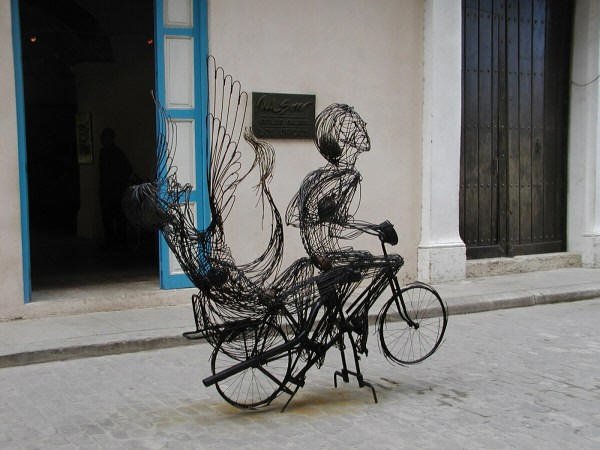
Estos son algunos apuntes de mi visita a Cuba realizada desde Noviembre de 2000 hasta Enero de 2001. Algunas cosas en Cuba son muy parecidas a los Estados Unidos, pero muchas otras cosas son muy, pero que muy diferentes.
Este trabajo no pretende ser un análisis en gran escala sobre Cuba. Eso estaría más allá de su alcance. Se trata de mis observaciones, reflexiones y comentarios acerca de cosas que vi, escuché e hice personalmente. Antes y después de viajar a Cuba pasé algún tiempo visitando a México para ganar perspectiva y hacer algunas comparaciones. Espero que lo encuentre útil.
En la página final de este trabajo, encontrará enlaces con algunas otras fotos que tomé y una página con referencias sobre fuentes útiles en inglés para que pueda profundizar en su investigación sobre Cuba de manera independiente.
¿POR QUÉ CUBA? ¿POR QUÉ YO?
Mi interés por Cuba tiene raíces familiares profundas. Mi padre y sus padres vivieron allí desde 1939 hasta 1942. Como refugiados judíos procedentes de la Alemania Nazi no pudieron entrar en la Gran Bretaña o los Estados Unidos, a pesar de tener familiares cercanos en ambos países. El gobierno de Roosevelt mantuvo de manera estricta una cuota restringida a la emigración judía. Mi padre y abuelos tuvieron que esperar en Cuba hasta 1943 para obtener permiso para entrar en los Estados Unidos. Yo nací en la ciudad de Nueva York en 1944. (Una buena historia de la experiencia judía en Cuba esTropical Diaspora de Robert M. Levine (1993) (ISBN:0-8130-1218-X). Hay otra novela que evoca de manera elocuente la época en que mi padre vivió en Cuba Passing Through Havana, por Felicia Rosshandler (ISBN: 0-312-59779-7).
Mi padre me llevó a Cuba en agosto de 1956.Visitamos la casa donde vivió y conocí a algunos de sus antiguos amigos. No recuerdo mucho de esa visita excepto que Cuba era un lugar muy caluroso y pegajoso (Tenía solamente 12 años en aquel momento). Nos hospedamos brevemente en el Hotel Nacional y después nos mudamos a un hotel más pequeño. Viajamos a Pinar del Rio con un viejo amigo John Gundrum que también era un inmigrante alemán pero de los que nunca se fueron de Cuba.
En noviembre de 2000 hice mi segunda visita a Cuba como adulto. A fines de 1999 había pasado tres semanas allí con una delegación de alumnos y maestros de yoga que nos reuníamos y practicábamos con nuestras contrapartes cubanas. Sabía bastante más que la mayoría de la gente en los Estados Unidos sobre la nación caribeña. Había leído bastante historia de Cuba y seguía los asuntos cubanos con atención. Ahora quería ver las cosas de cerca.
¿Cómo es que viven los cubanos el día a día? Deseaba tener una visión de cómo trabajan, de las cosas que les agradan y desagradan, y así sucesivamente. Una cosa es escuchar y leer en los medios sobre un lugar (¡Cuba es un lugar horrible! ¡La gente está desesperada por dejar el país!), o por otra parte versiones positivas nada críticas en los pocos medios favorables a Cuba.
Mi español es limitado por lo que frecuentemente tenía que depender de amigos y conocidos bilingües para obtener respuestas y direcciones. Durante mis 31 años de trabajo como trabajador social para el Distrito de Los Ángeles había adquirido un poco de “español callejero” elemental, pero no lo suficiente para mantener una conversación. Conocí a muchas personas que hablaban inglés y que querían practicarlo, por lo que pude obtener respuestas a mis muchas preguntas.
Los teléfonos: No se le ocurra pensar que va a coger un teléfono y encontrar tono de discar cada vez que lo necesite. Una vez que consiga el tono de discar y marque el número, no espere obtener una conexión enseguida. No siempre es posible lograrlo en Cuba. Me habían dicho que el servicio telefónico en la zona del Vedado era bastante problemático, pero eso resultó ser cierto para los demás lugares también. Las dificultades se le atribuyen al cambio de la telefonía analógica a la digital, un proceso que estaba todavía a medio concluir durante mi estancia allí.
En La Habana me alojé con una familia cubana que había conocido en 1999. Uno de los miembros de la familia acababa de dejar su trabajo de 13 años en el sector estatal para dedicarse al trabajo por cuenta propia. Traduce guiones de televisión cubanos del español al inglés por contratos independientes. Cuba espera vender algunos de esos guiones a distribuidores tales como el Discovery Channel. También hace traducciones para periodistas y cineastas visitantes. Unas semanas antes de mi llegada había trabajado con Barbara Kopple, documentalista ganadora de Oscar, en la filmación de la visita del Ballet de Washington D.C. a Cuba. Su madre es una ingeniera que trabaja en un Ministerio del Gobierno y es miembro del Partido Comunista de Cuba. No pagué alojamiento, pero compré alimentos y algunas otras cosas para la familia. Con frecuencia iba de compras y a veces cocinaba para la familia. ¡Creo que no habían comido tanto ajo en su vida! (Por suerte les gusta el ajo…)
LOS OBJETIVOS HISTÓRICOS DE CUBA:
INDEPENDENCIA Y UNA SOCIEDAD JUSTA
Para entender la Cuba de hoy es esencial conocer la amarga historia de sus relaciones con los Estados Unidos. Ambas naciones tienen una larga, estrecha y tensa conexión. Los políticos norteamericanos del Siglo XIX consideraron anexarse la Isla. Trataron de evitar su independencia y de obstaculizar sus esfuerzos por lograr una sociedad justa en la cual los intereses nacionales cubanos tuvieran la prioridad. Aún hoy la mayoría de los políticos norteamericanos hablan y actúan como si tuvieran el derecho de decirles a los cubanos como administrar Cuba. La Revolución dirigida por Fidel Castro y sus compañeros ha sido el más exitoso de los esfuerzos independentistas cubanos.
Los partidarios del derrocado gobierno del dictador Batista fueron bienvenidos en los Estados Unidos. Washington se opuso a los esfuerzos cubanos para asumir el control de sus recursos nacionales que estaban en manos de compañías extranjeras (mayormente norteamericanas). Se ha opuesto y tratado de revertir la Revolución a cada paso. Washington y sus seguidores llaman a esta política “el embargo”, pero los cubanos la llaman “el bloqueo”. Esto se debe a que Washington trata denodadamente de empujar a los demás países a apoyar sus actividades anti cubanas.
A PARTIR DEL COLAPSO DE LA UNIÓN SOVIÉTICA
Durante la alianza de Cuba con la Unión Soviética y los Estados de Europa Oriental, la Isla mantuvo convenios estables y a largo plazo por sus productos, en ocasiones con precios superiores a los del mercado mundial. Eso suministró la base militar y económica para que Cuba pudiera sobrevivir los esfuerzos de Washington mantenidos durante décadas para rendirla por hambre. La política y la economía de la Isla tuvieron una fuerte influencia del modelo soviético.
Todas las casas que visité en Cuba tienen un sistema para almacenar agua en lo alto. Se trata de tanques grandes (piense en barriles de aceite). El agua se bombea una o dos veces al día (en la casa donde vivía se hacía de las 6 a las 8 p.m. y los sábados y domingos se hacía por la mañana). Cada casa o apartamento tiene solamente una cantidad finita de agua. Por supuesto, esto es en La Habana. Por lo que me cuentan la situación es diferente en otras ciudades y zonas rurales. Los problemas de plomería de agravaron mucho durante el Período Especial por la carencia de piezas para reparar el deterioro de la vieja infraestructura en esta extensa y cosmopolita ciudad. Imagínese a Nueva York o a Los Ángeles después de un período similar de diez años sin mantenimiento. Tal vez una película de la era de postguerra nuclear le pueda dar una idea.
A pesar de que yo nunca experimenté un corte total de agua, eso le ocurría a algunas casas en la ciudad. En esos casos camiones cisterna grandes acudían y los vecinos cargaban agua en recipientes y los arrastraban a sus hogares. Muchas personas hierven o procesan el agua con productos químicos antes de beberla. En el lugar donde me alojaba consideraban suficientes unas gotas purificadoras. Algunos viajeros con los que conversé utilizaban yodo, pero muchos que se alojaban en hoteles no lo consideraban necesario. Los habaneros más precavidos continúan hirviendo el agua.
Walter Lippmann, Interviewed on Law & Disorder Radio March 23, 2016
This interview was conducted on March 23, 2016, on the meaning of President Barack Obama’s visit to Cuba.
Hosted by: Michael Ratner, Michael Smith, Heidi Boghosian
Law & Disorder, a groundbreaking radio program that among many things, encourages listeners to get involved with and understand the legal issues eroding all of our civil liberties — set in the new reality of homeland security. Law & Disorder examines the police-state measures of U.S. foreign policy as a permanent global feature and the subsequent rollback of democratic rights. Four program hosts will analyze and discuss the laws that corrode our freedom of speech, equal protection and due process of the law.
Photos from Walter’s First Cuba Trip, 1956
When these pictures were taken, I was twelve years old. It was my first visit to Cuba.
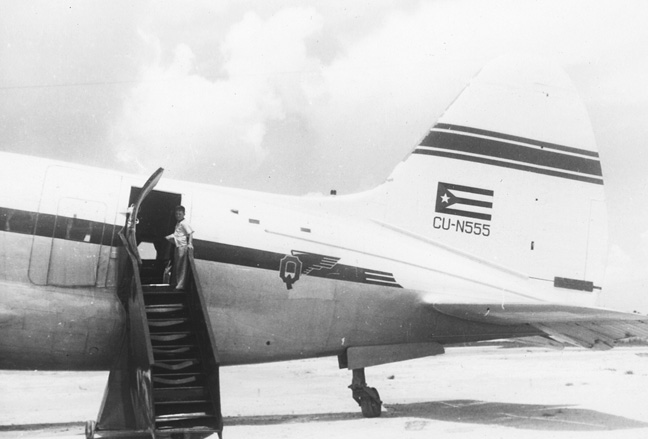
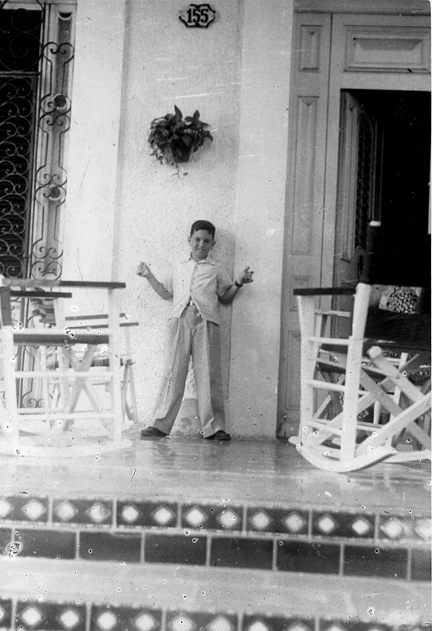
Subscribe to Blog via Email
| M | T | W | T | F | S | S |
|---|---|---|---|---|---|---|
| 1 | ||||||
| 2 | 3 | 4 | 5 | 6 | 7 | 8 |
| 9 | 10 | 11 | 12 | 13 | 14 | 15 |
| 16 | 17 | 18 | 19 | 20 | 21 | 22 |
| 23 | 24 | 25 | 26 | 27 | 28 | |


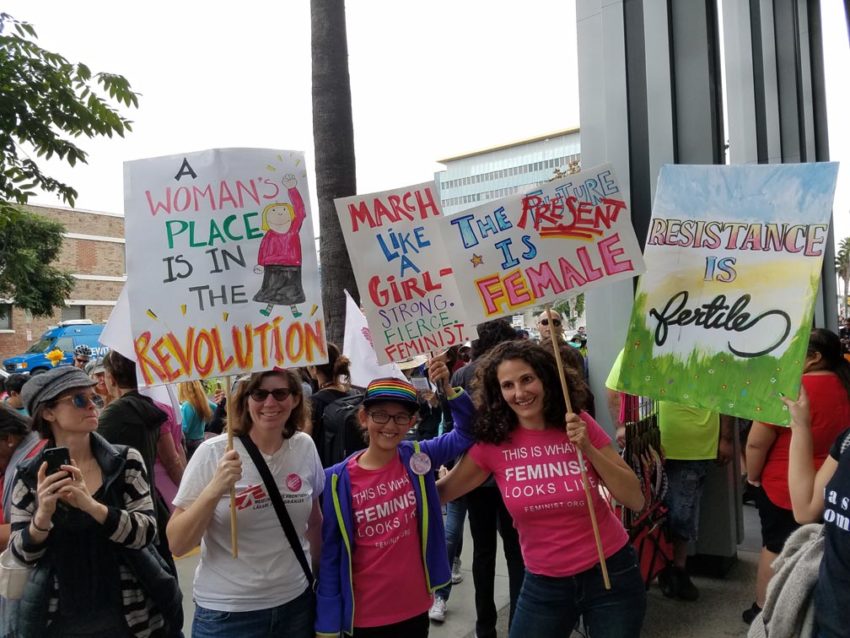
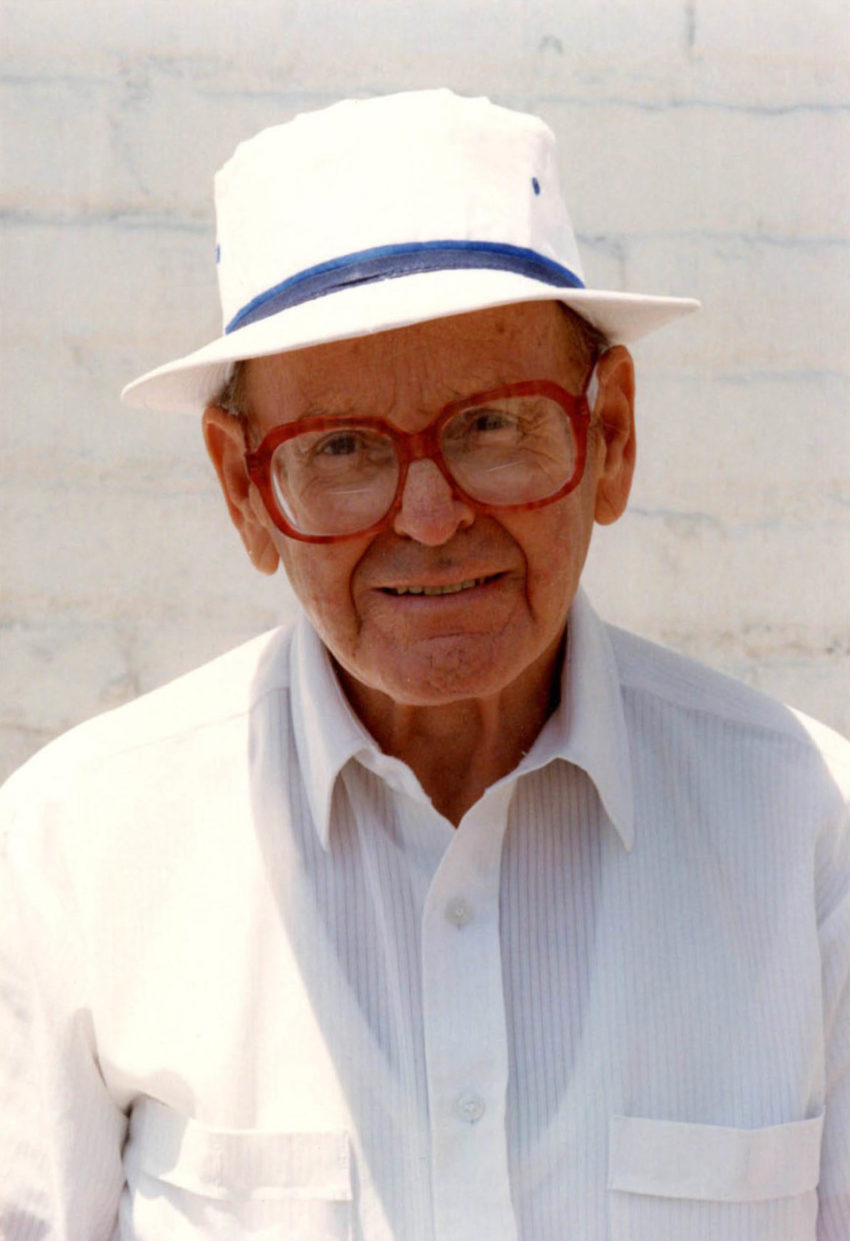
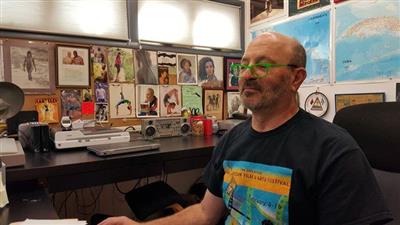


You must be logged in to post a comment.